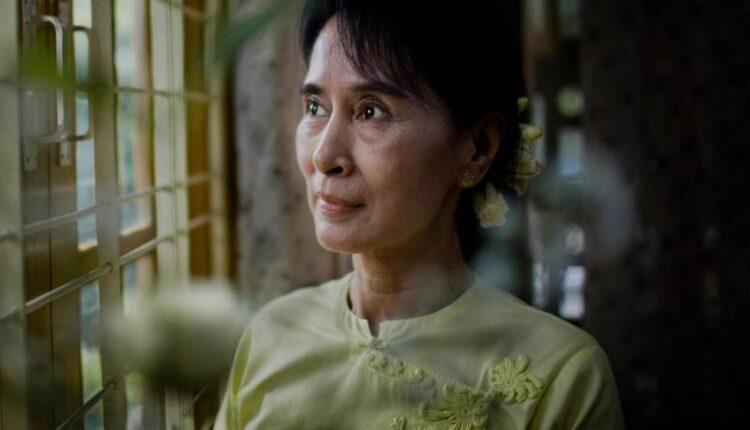(CNN)The streets of Myanmar’s largest city, Yangon, appeared outwardly calm Tuesday morning, as residents made their way to work a day after the military detained Aung San Suu Kyi and other democratically-elected leaders and seized control of the country.
But behind the business-as-usual facade, anxiety is growing among many as to what will come next. Memories of living under the brutal military rule of the past are seared into the minds and bodies of many Burmese people. Critics, activists, journalists, academics and artists were routinely jailed and tortured during nearly 50 years of isolationist rule. There are now fears that Monday’s actions could be a prelude to a wider clampdown. In all, the new ruling junta removed 24 minsters and deputies from government over allegations of election fraud and named 11 of its own allies as replacements who will assume their roles in a new administration.
On Tuesday, Health Minister Myint Htwe also announced on Facebook that he was leaving his post “as per the evolving situation.”Questions as to the exact whereabouts of, and who is in communication with, senior members of the formerly ruling National League for Democracy (NLD), including recently deposed State Counsellor Suu Kyi, remain unclear.Read MoreOne member of parliament (MP), who asked not to be named for fear of reprisals, told CNN by phone on Tuesday that around 400 MPs are being detained in a large guesthouse in Naypiydaw.The MP described the guesthouse as a large compound where detainees are able to roam freely, but are prohibited from leaving by military guards patrolling the gates.He also said that, so far, the detained politicians are not trying to negotiate their release and do not know what will happen to them.In a statement Tuesday, the NLD called for the immediate release of those detained, including recently deposed President Win Myint and Suu Kyi, and to allow the country’s third parliament to govern.It also called for the recognition of November’s general election results and said the coup was “a defamatory act against the history” of Myanmar and its government.
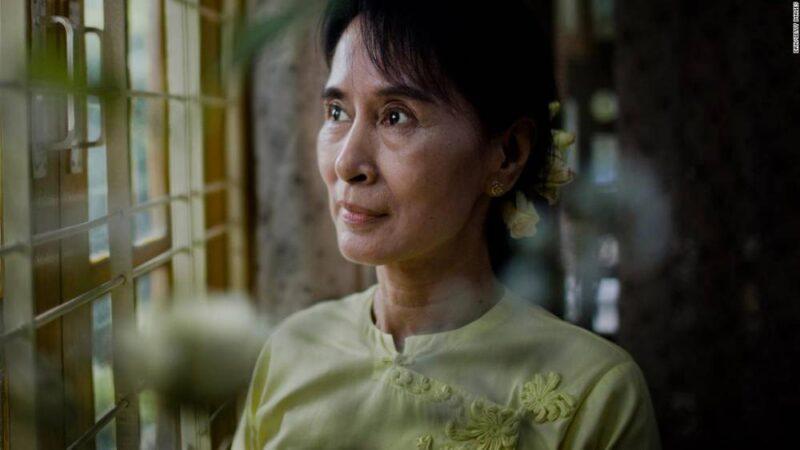
Photos: Aung San Suu KyiAung San Suu Kyi poses for a portrait in Yangon, Myanmar, in 2010. A month earlier, she had been released from house arrest.Hide Caption 1 of 37
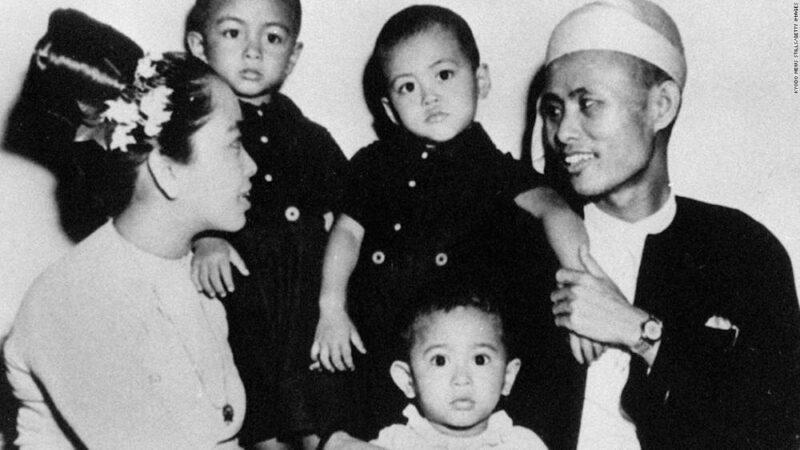
Photos: Aung San Suu KyiSuu Kyi, front center, is seen with her parents and her two elder brothers in 1947. Her father, Aung San, was the commander of the Burma Independence Army and helped negotiate the country’s independence from Britain. He was assassinated on July 19, 1947. Suu Kyi’s mother, Ma Khin Kyi, was a diplomat who was once an ambassador to India.Hide Caption 2 of 37
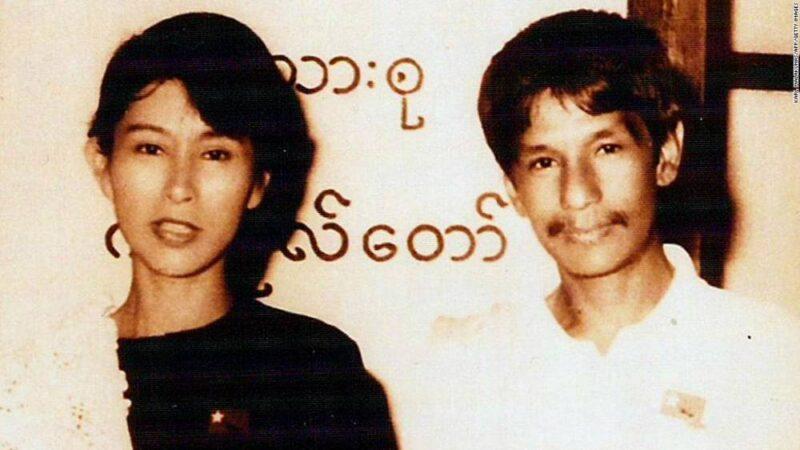
Photos: Aung San Suu KyiSuu Kyi poses with Burmese comedian Par Par Lay, who was part of the pro-democracy act “The Moustache Brothers.” Suu Kyi grew up in Myanmar and India but moved to England in the 1960s, where she studied at Oxford University. She returned to Myanmar in 1988 and co-founded the National League for Democracy, a political party dedicated to nonviolence and civil disobedience.Hide Caption 3 of 37
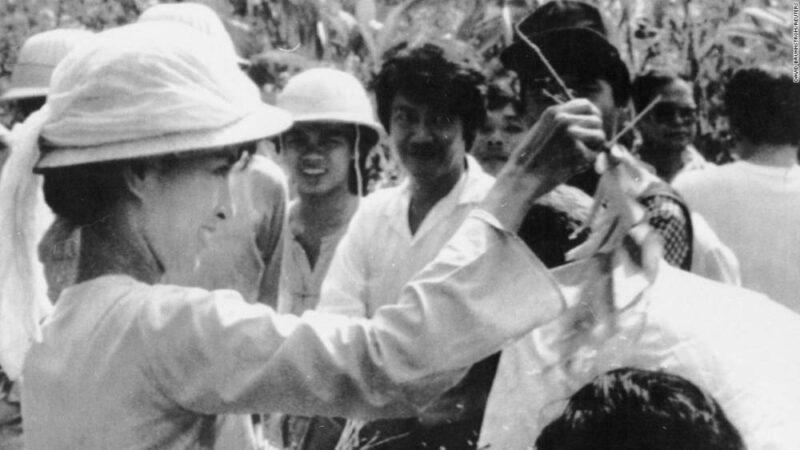
Photos: Aung San Suu KyiSuu Kyi sprinkles water over the heads of her followers during a traditional new year ceremony in Yangon in 1989. Five days of celebrations were marked by anti-government protests closely watched by armed troops.Hide Caption 4 of 37
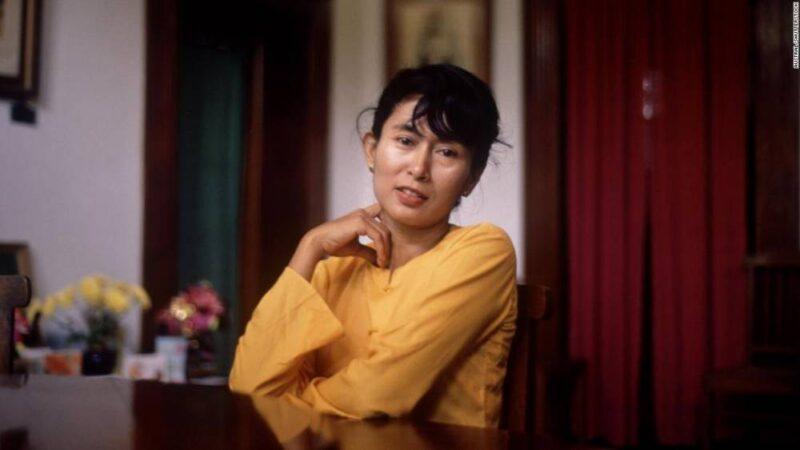
Photos: Aung San Suu KyiSuu Kyi poses for a photo in June 1989.Hide Caption 5 of 37
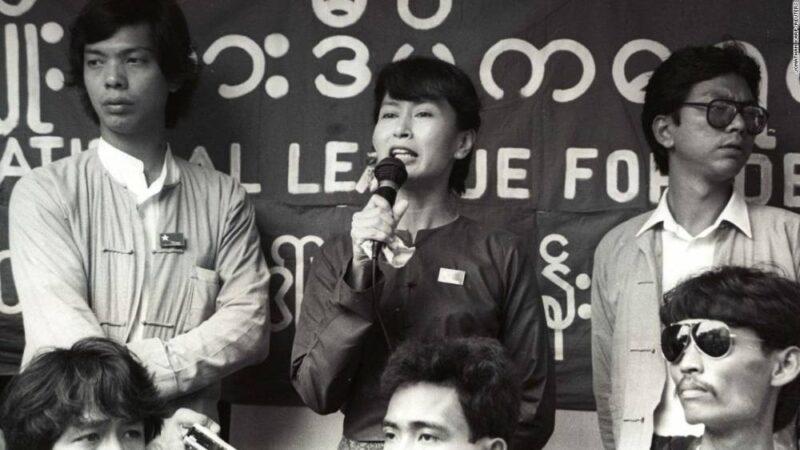
Photos: Aung San Suu KyiSuu Kyi addresses a crowd of supporters in Yangon in July 1989. About two weeks later, she was placed under house arrest and charged with trying to divide the military. She denied the charges.Hide Caption 6 of 37
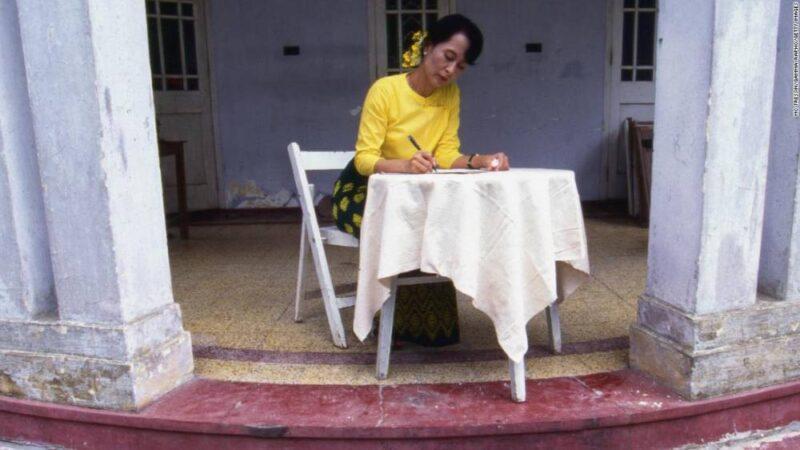
Photos: Aung San Suu KyiWhile under house arrest, Suu Kyi won the Nobel Peace Price in 1991. She was honored “for her non-violent struggle for democracy and human rights.”Hide Caption 7 of 37
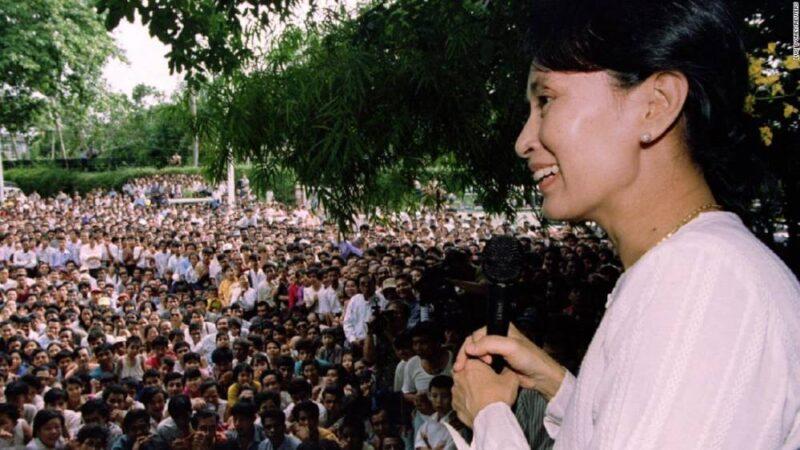
Photos: Aung San Suu KyiSuu Kyi speaks to hundreds of supporters from the gate at her residential compound in Yangon in 1995. She had just been released from house arrest, but her political activity was restricted.Hide Caption 8 of 37
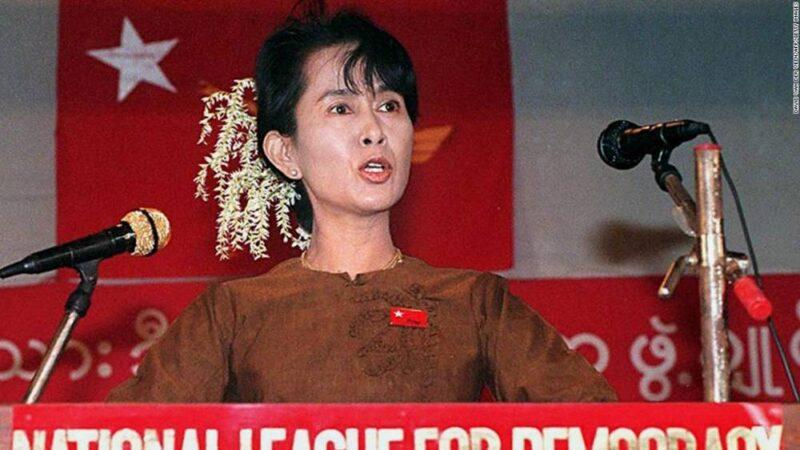
Photos: Aung San Suu KyiSuu Kyi addresses supporters in 1997, on the 49th anniversary of Myanmar’s independence movement.Hide Caption 9 of 37
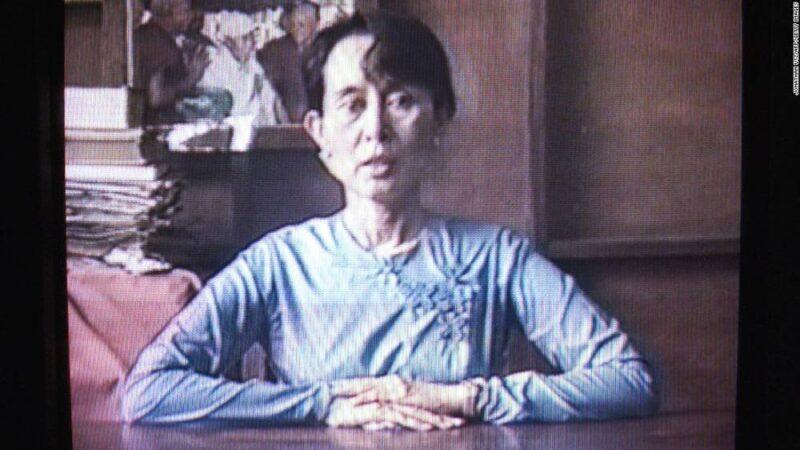
Photos: Aung San Suu KyiSuu Kyi, in a 1999 home video, gives her support to economic sanctions against her country as a means to affect the governing military.Hide Caption 10 of 37
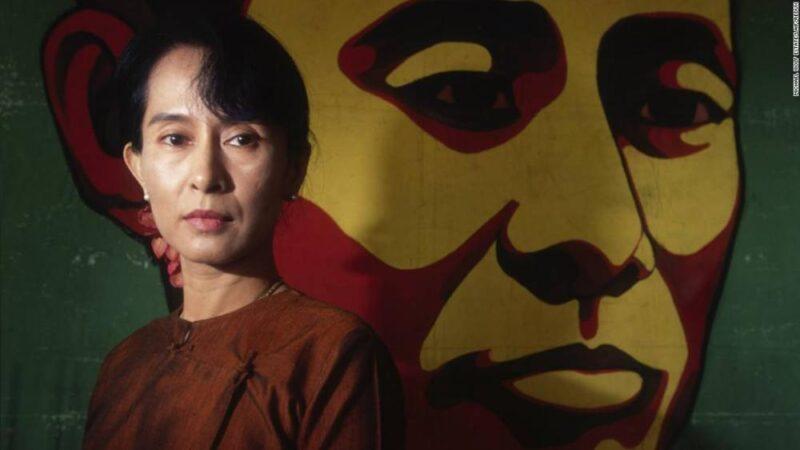
Photos: Aung San Suu KyiSuu Kyi poses in front of a portrait of her father in 1999. In 2000, she was once again placed under house arrest. Hide Caption 11 of 37
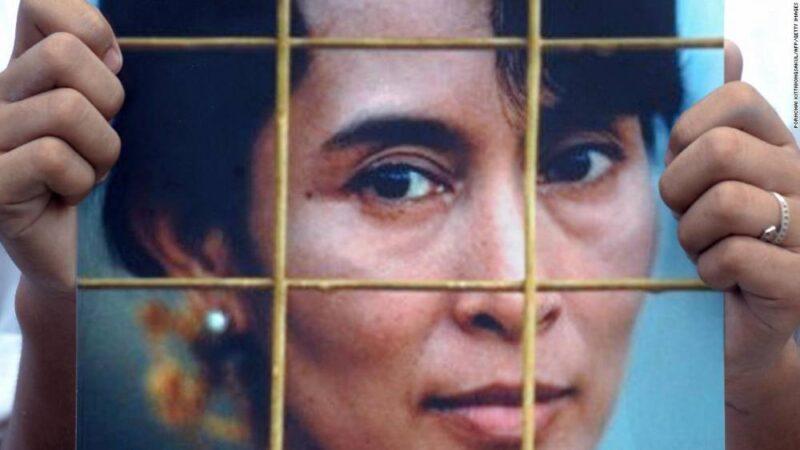
Photos: Aung San Suu KyiAn activist holds a Suu Kyi portrait during a protest at the Chinese Embassy in Bangkok, Thailand, in 2009. The protesters were calling on the Chinese government to impose sanctions on Myanmar’s military government following a Suu Kyi trial.Hide Caption 12 of 37
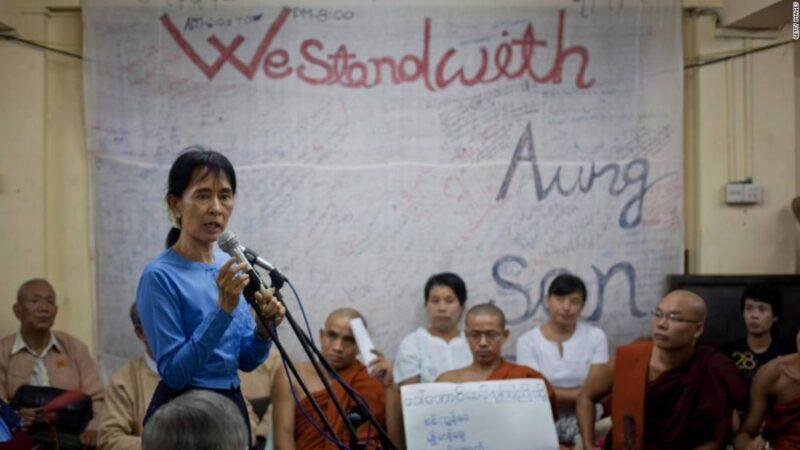
Photos: Aung San Suu KyiSuu Kyi speaks in Yangon in December 2010, a month after being released from house arrest. She had spent 15 of the previous 21 years under house arrest.Hide Caption 13 of 37
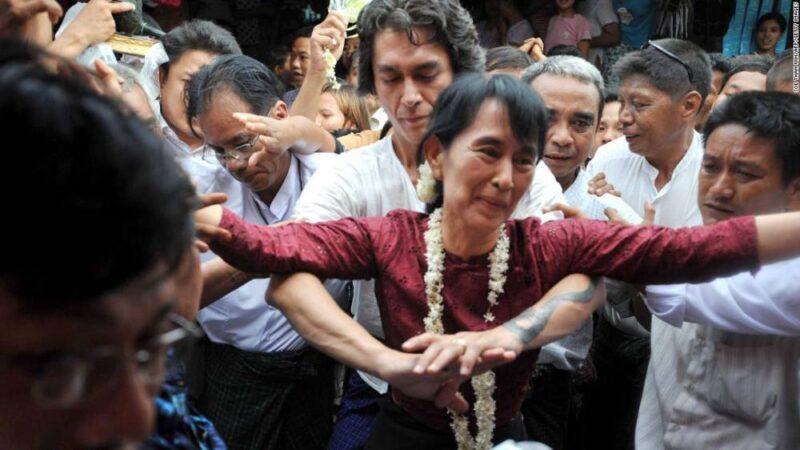
Photos: Aung San Suu KyiSuu Kyi is held by her son Kim Aris as she is greeted by supporters during a visit to the ancient temple city of Bagan in 2011.Hide Caption 14 of 37
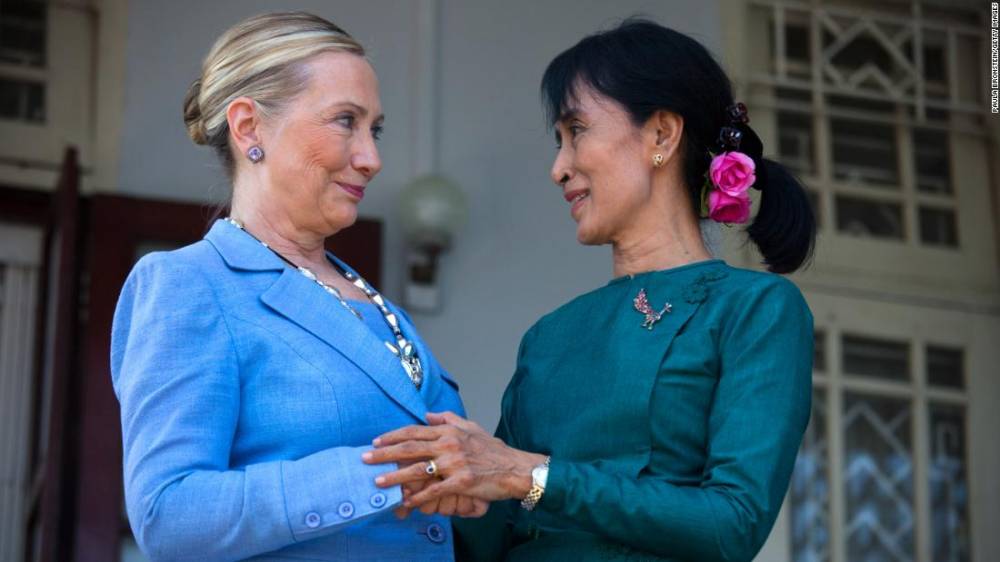
Photos: Aung San Suu KyiSuu Kyi meets US Secretary of State Hillary Clinton at Suu Kyi’s residence in Yangon in 2011.Hide Caption 15 of 37
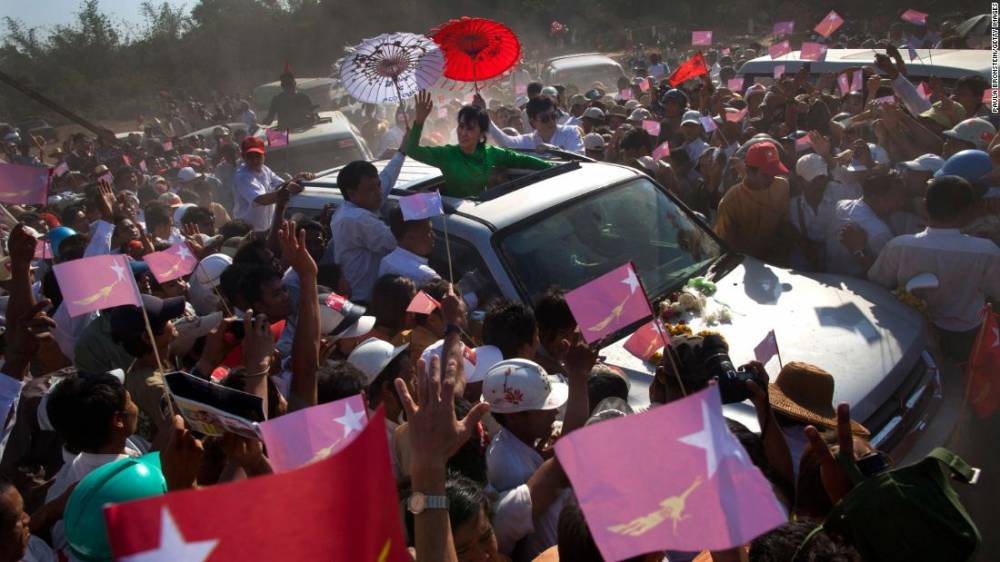
Photos: Aung San Suu KyiSuu Kyi greets crowds while campaigning in Pathein, Myanmar, in 2012. She was running for a seat in parliament.Hide Caption 16 of 37
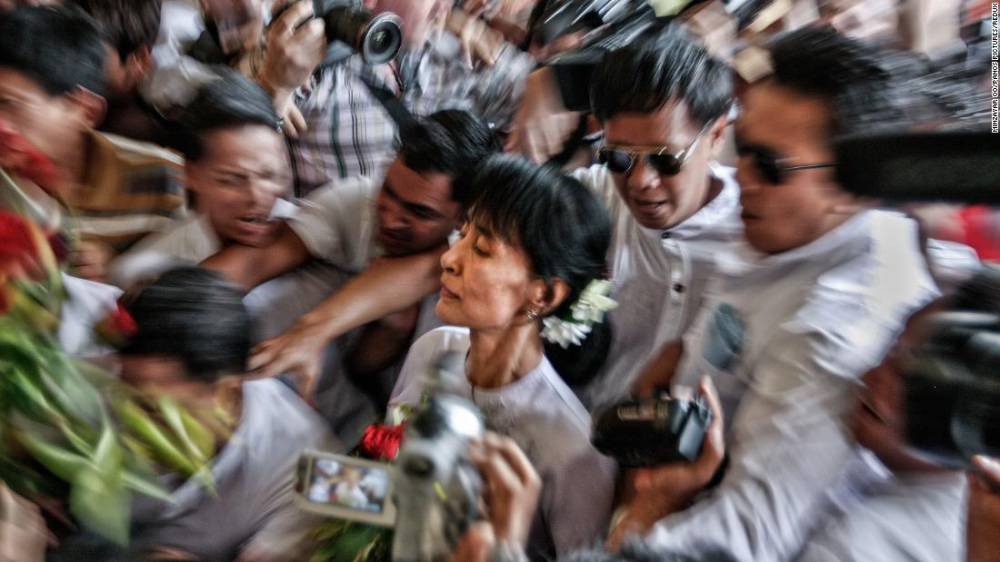
Photos: Aung San Suu KyiSuu Kyi makes her way through a crowd in 2012, a day after she won a seat in parliament. It was Myanmar’s first multiparty elections since 1990.Hide Caption 17 of 37
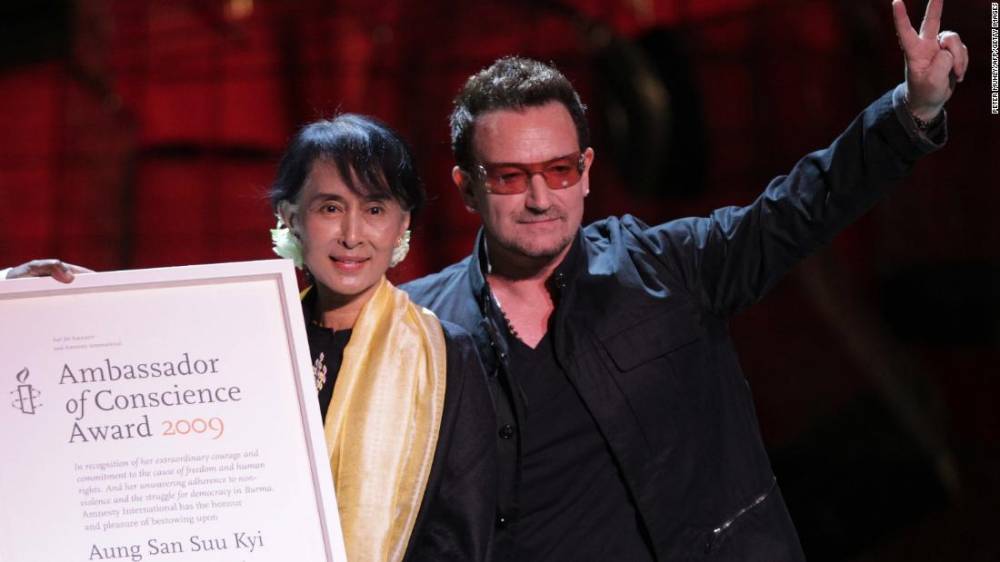
Photos: Aung San Suu KyiSuu Kyi accepts the Ambassador of Conscience Award next to U2 singer Bono during a European tour in 2012.Hide Caption 18 of 37
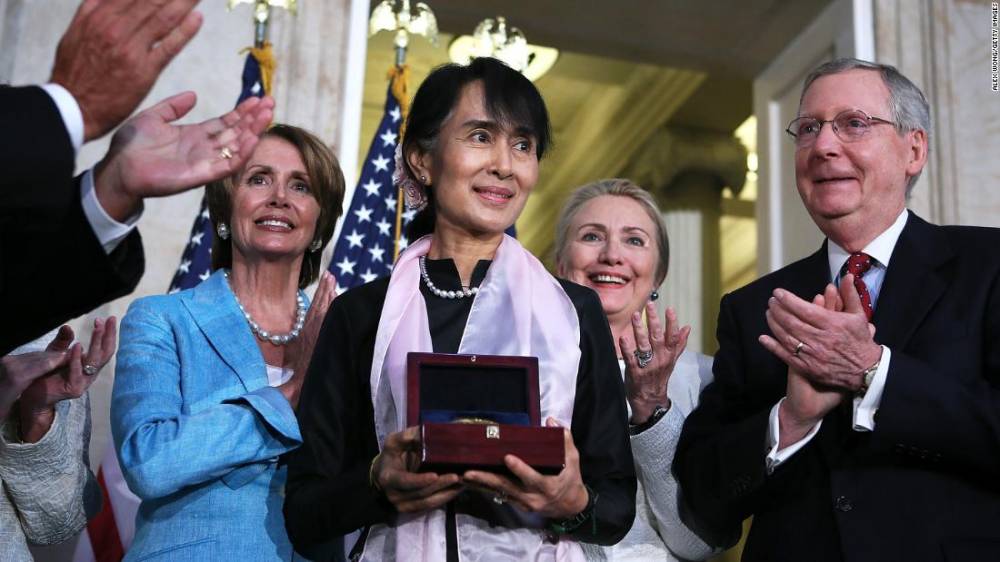
Photos: Aung San Suu KyiSuu Kyi is presented with the Congressional Gold Medal while visiting the US Capitol in 2012.Hide Caption 19 of 37
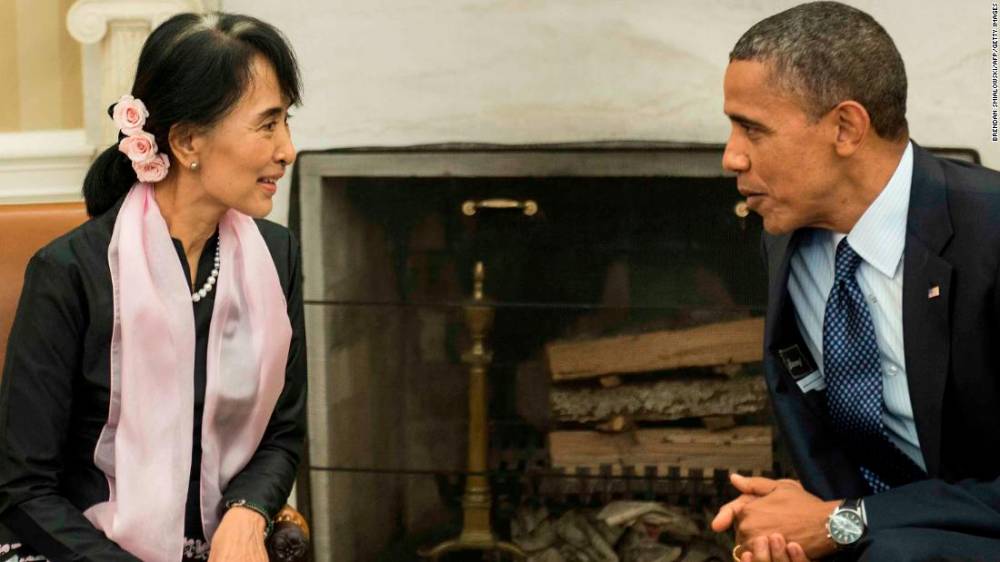
Photos: Aung San Suu KyiSuu Kyi meets with US President Barack Obama in the White House Oval Office. Obama later visited her lakeside villa in Myanmar. It was the first visit to Myanmar by a sitting US president.Hide Caption 20 of 37
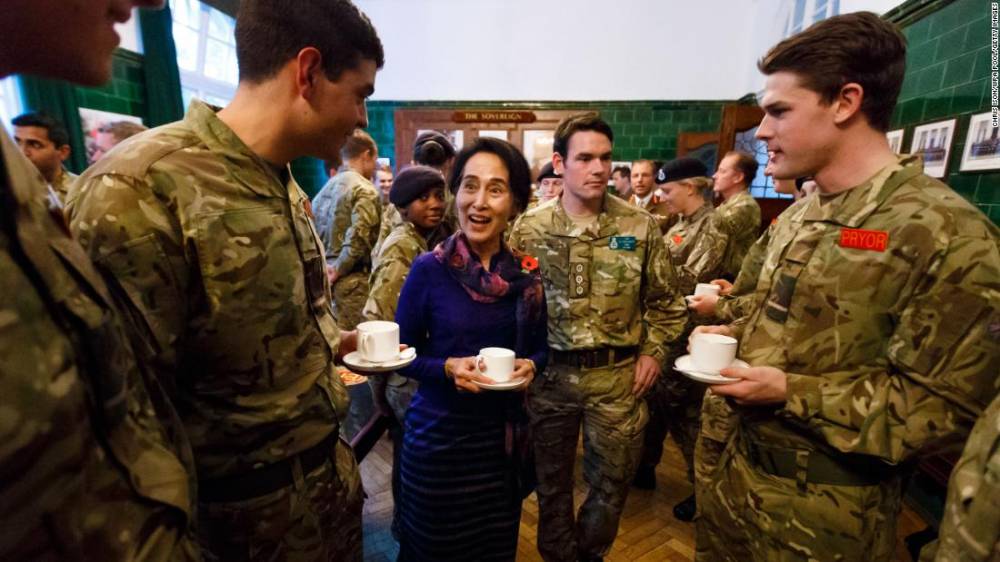
Photos: Aung San Suu KyiSuu Kyi joins officer cadets for tea while visiting a military academy in Camberley, England, in 2013.Hide Caption 21 of 37
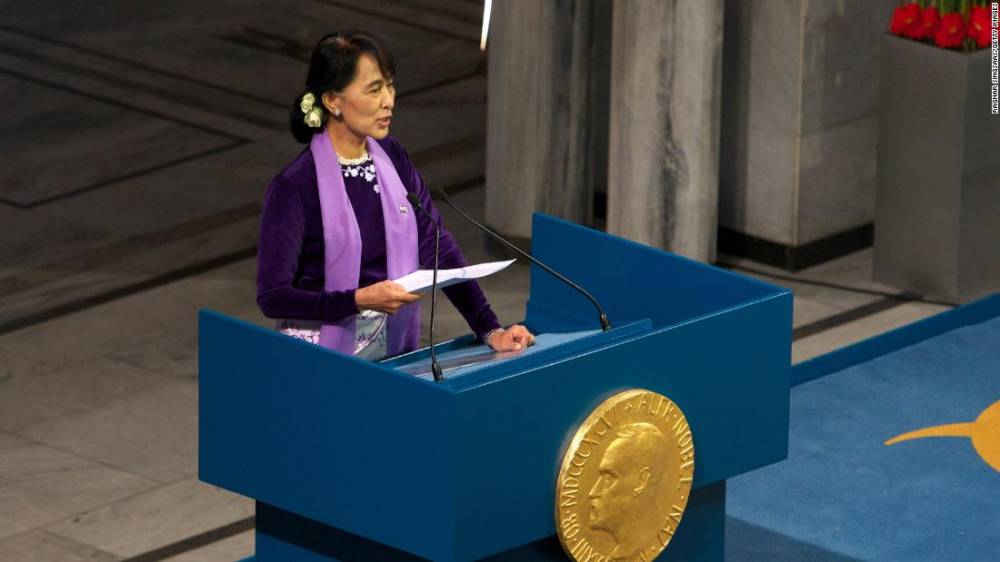
Photos: Aung San Suu KyiSuu Kyi speaks during a Nobel lecture in Oslo, Norway, in 2015. She was finally able to receive the Nobel Peace Prize that she won while she was under house arrest in 1991.Hide Caption 22 of 37
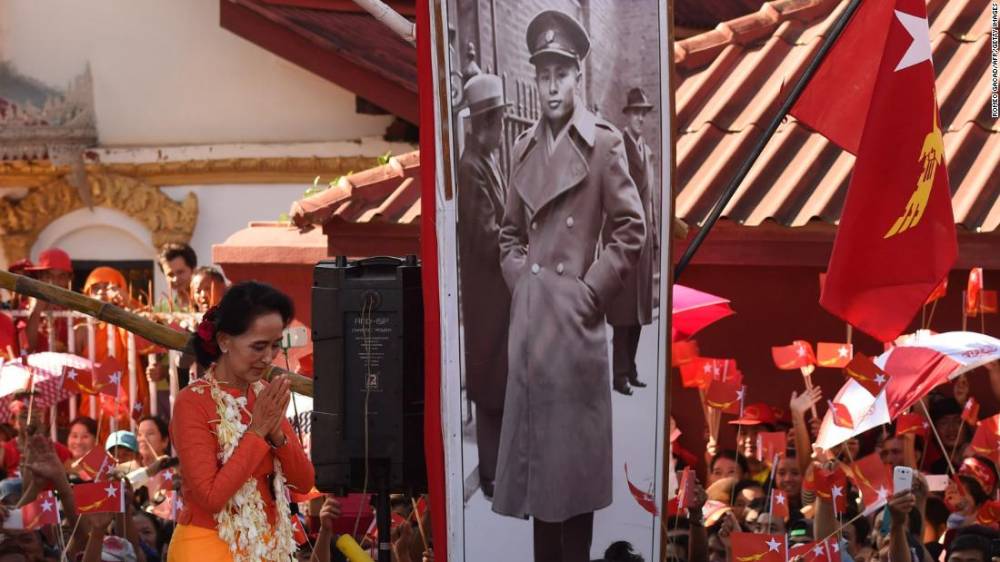
Photos: Aung San Suu KyiSuu Kyi descends from a stage decorated with a portrait of her late father during a campaign rally in 2015.Hide Caption 23 of 37
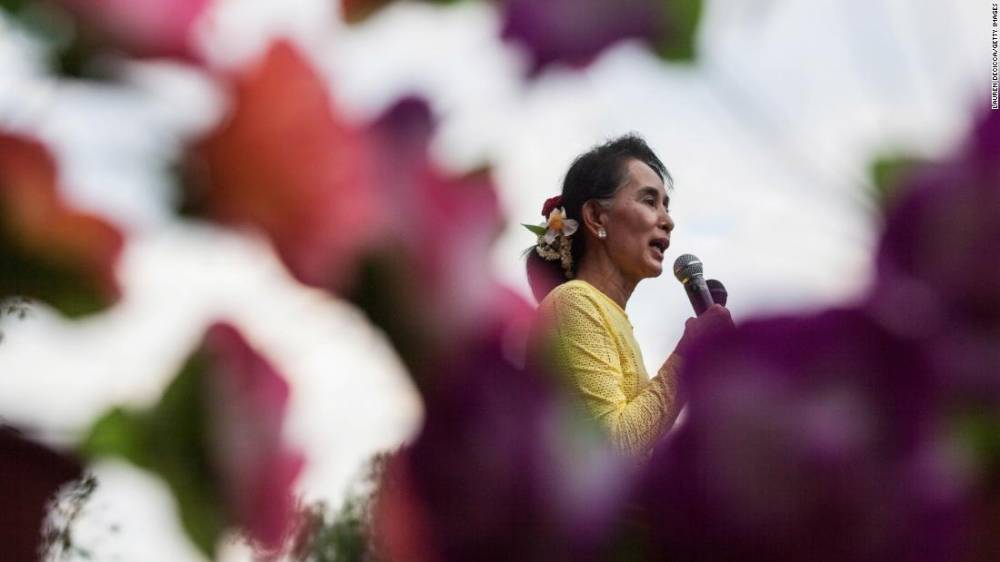
Photos: Aung San Suu KyiSuu Kyi campaigns in Kawhmu, Myanmar, in 2015.Hide Caption 24 of 37
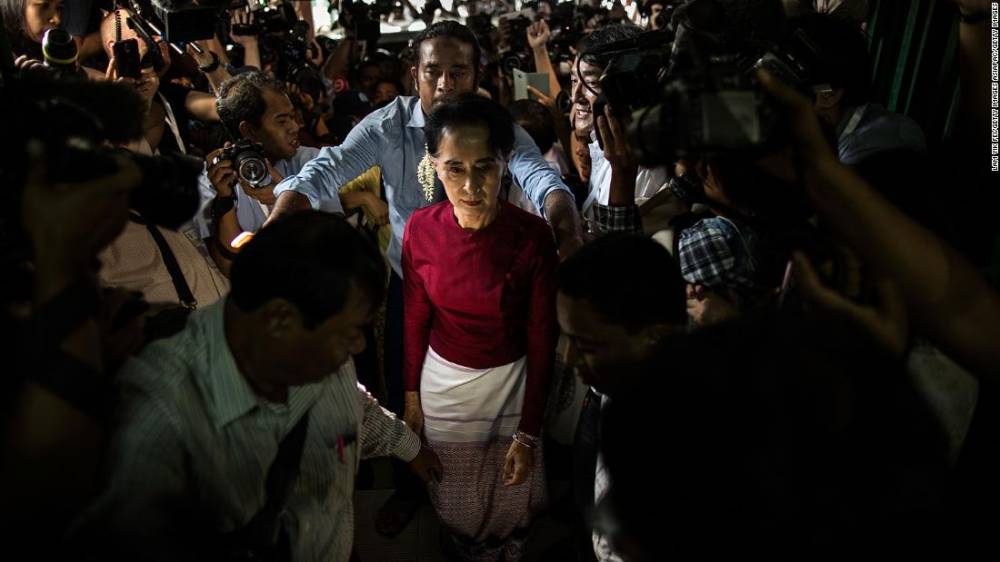
Photos: Aung San Suu KyiSuu Kyi arrives at a polling station to cast her vote in 2015. Her party won a historic majority in the nation’s first freely held parliamentary elections. Suu Kyi was not able to become president, however, because of a constitutional amendment that prohibits anyone with foreign relatives from becoming the nation’s leader. She was later named state counselor, a role created especially for her.Hide Caption 25 of 37
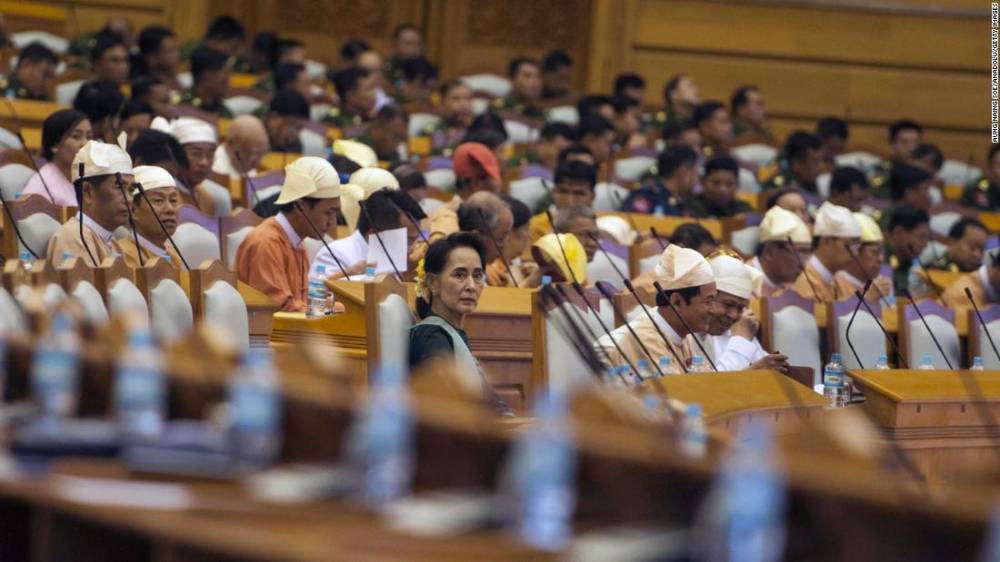
Photos: Aung San Suu KyiSuu Kyi and members of parliament take their positions during the presidential vote in Naypyidaw, Myanmar, in 2016. Htin Kyaw, Suu Kyi’s longtime aide, was voted as president.Hide Caption 26 of 37
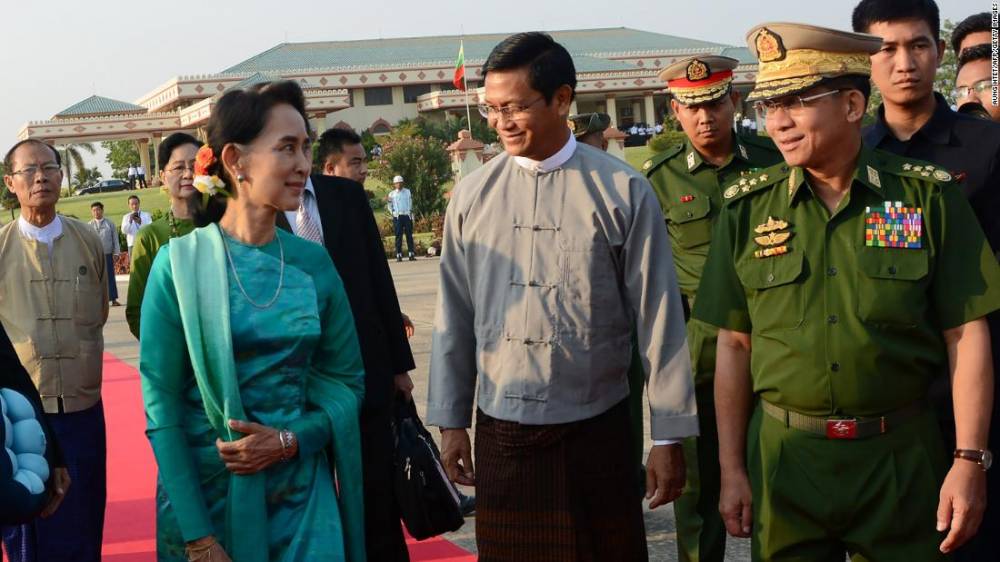
Photos: Aung San Suu KyiSuu Kyi walks with Gen. Min Aung Hlaing, the country’s military leader, at the Naypyidaw city airport in 2016.Hide Caption 27 of 37
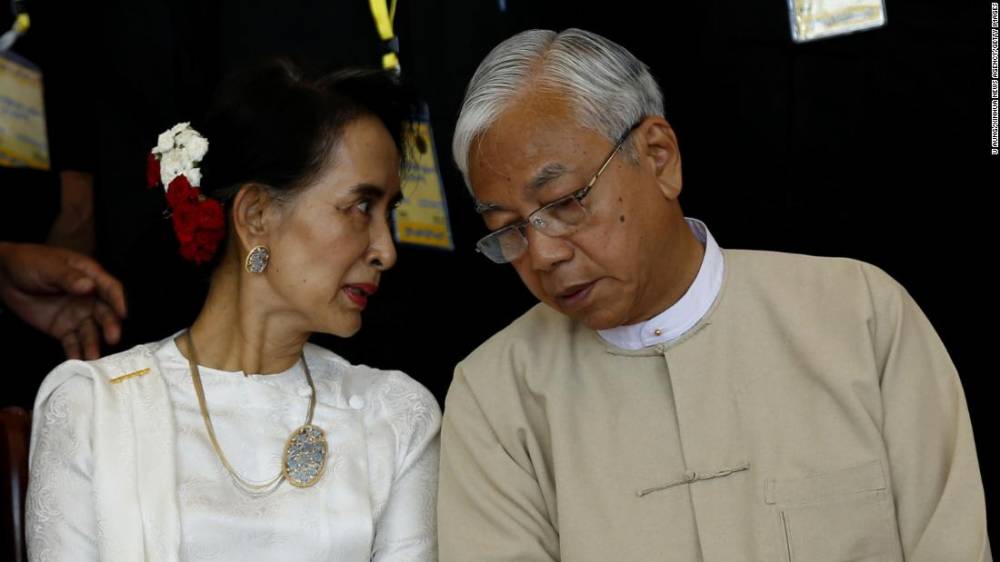
Photos: Aung San Suu KyiSuu Kyi and President Kyaw talk at a conference in Naypyidaw in 2016.Hide Caption 28 of 37
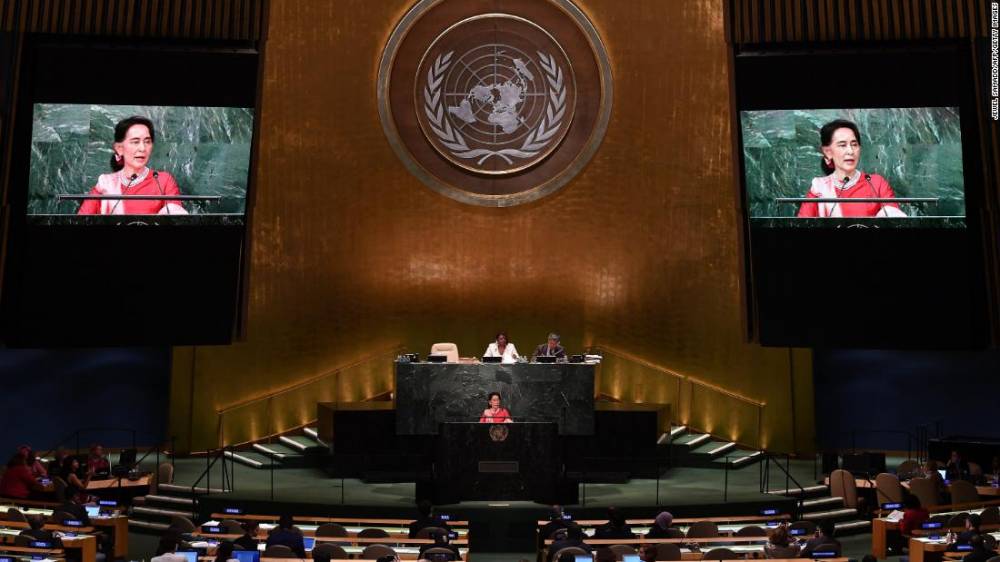
Photos: Aung San Suu KyiSuu Kyi addresses the United Nations General Assembly in New York in 2016.Hide Caption 29 of 37
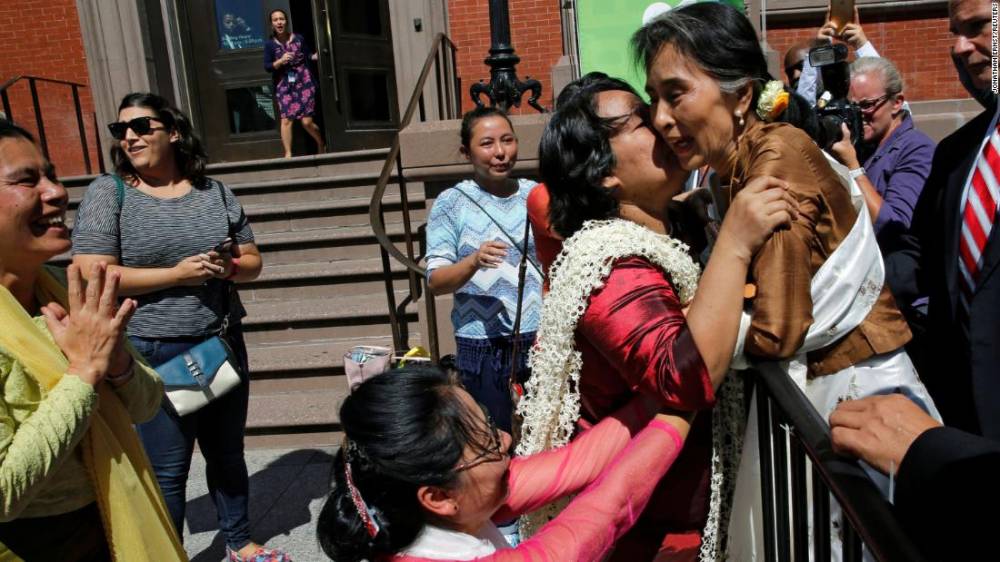
Photos: Aung San Suu KyiSupporters rush to greet Suu Kyi in Washington, DC, after she met with US Secretary of State John Kerry in 2016.Hide Caption 30 of 37
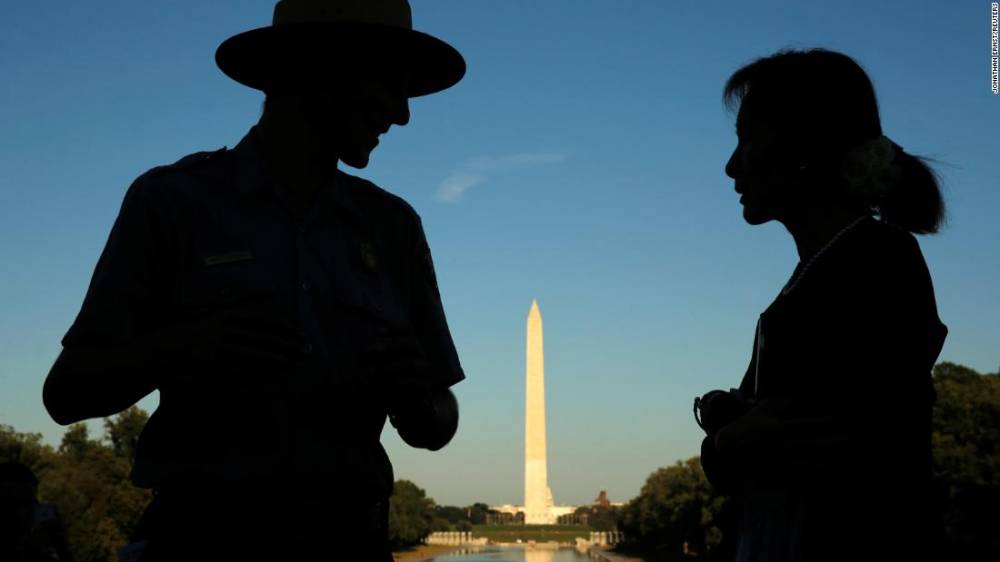
Photos: Aung San Suu KyiSuu Kyi is guided by National Park Service Ranger Heath Mitchell on her visit to Washington, DC, in 2016.Hide Caption 31 of 37
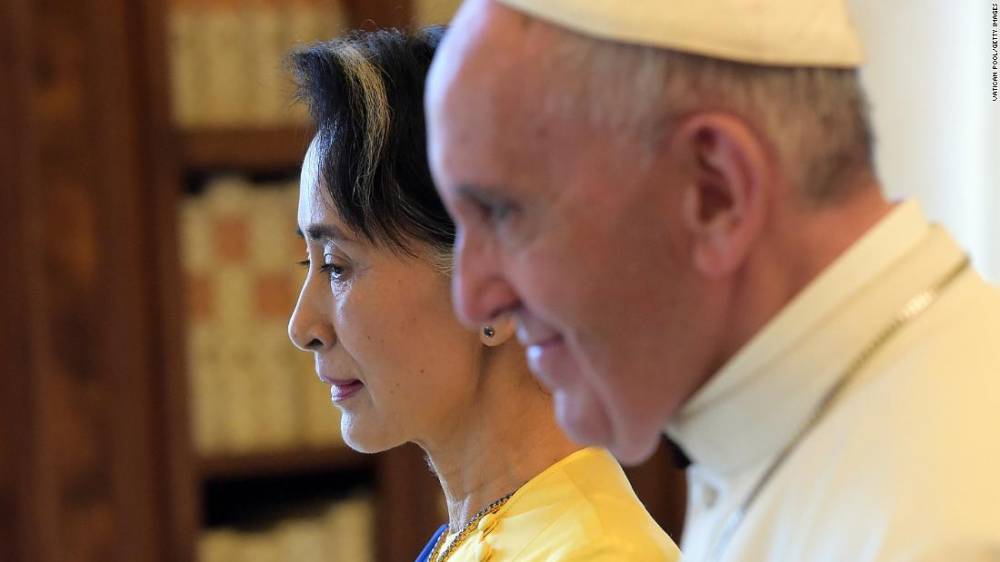
Photos: Aung San Suu KyiSuu Kyi met with Pope Francis at the Vatican in 2017.Hide Caption 32 of 37
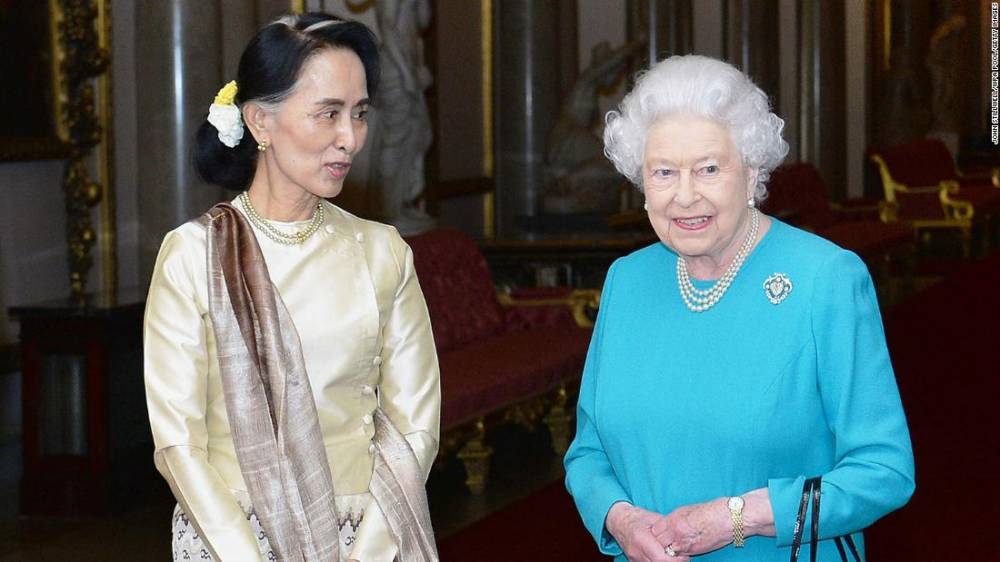
Photos: Aung San Suu KyiBritain’s Queen Elizabeth II greets Suu Kyi ahead of a private lunch at Buckingham Palace in 2017.Hide Caption 33 of 37
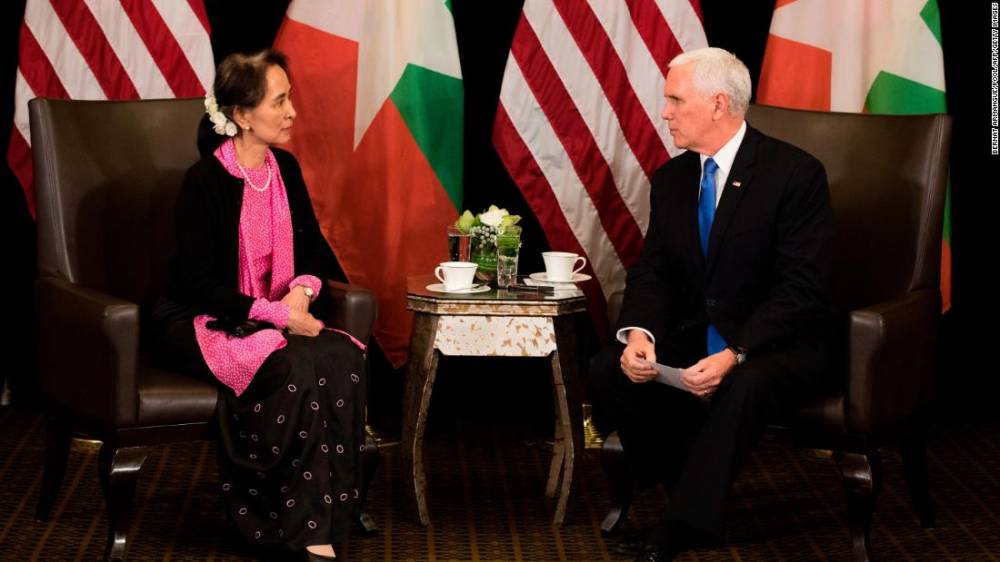
Photos: Aung San Suu KyiUS Vice President Mike Pence meets with Suu Kyi on the sidelines of the ASEAN summit in Singapore in 2018.Hide Caption 34 of 37
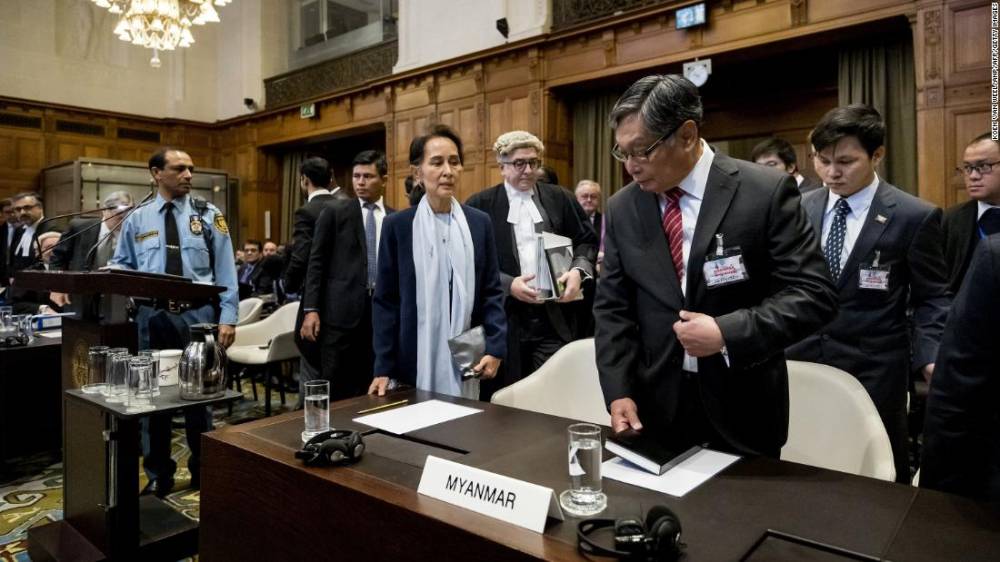
Photos: Aung San Suu KyiSuu Kyi stands before the UN’s International Court of Justice in 2019. The nation of Gambia filed a lawsuit in the world court alleging that Myanmar committed “genocidal acts” against Myanmar’s Rohingya Muslims. Suu Kyi has repeatedly denied such charges, siding with the military and labeling the accusations as “misinformation.”Hide Caption 35 of 37
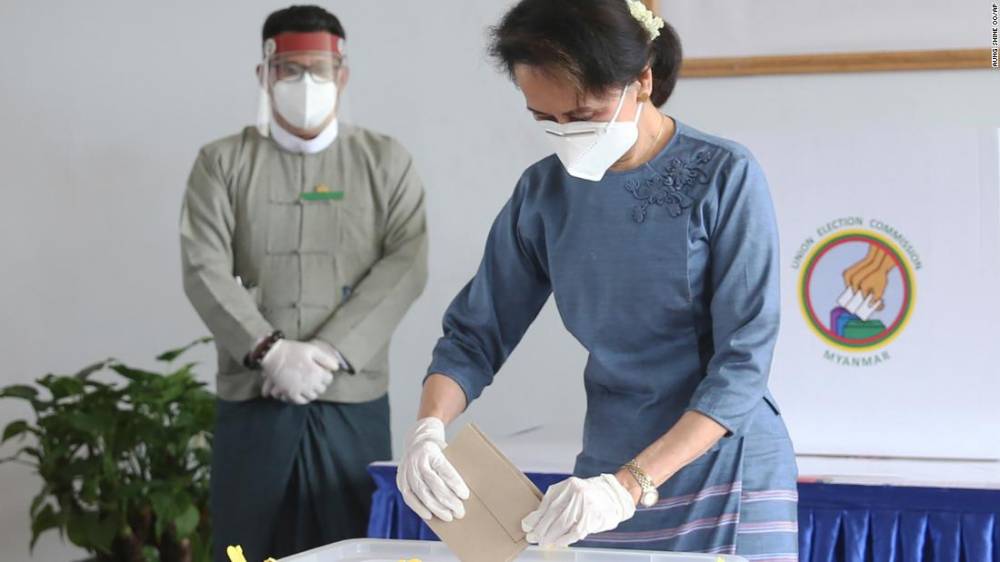
Photos: Aung San Suu KyiSuu Kyi casts her ballot during advance voting in 2020.Hide Caption 36 of 37
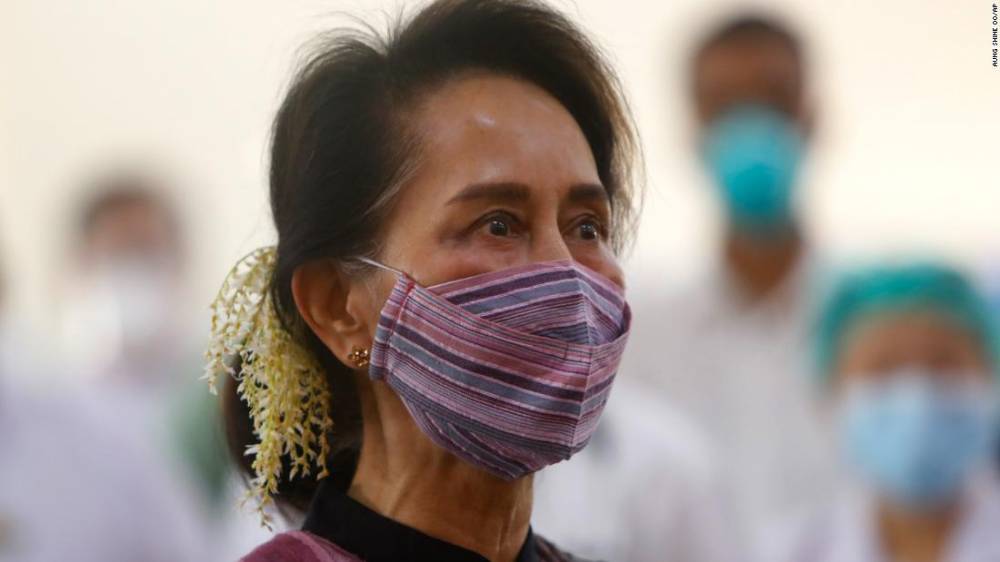
Photos: Aung San Suu KyiSuu Kyi watches the vaccination of health workers at a hospital in Naypyidaw in January 2021. A few days later, the military detained her in a coup.Hide Caption 37 of 37
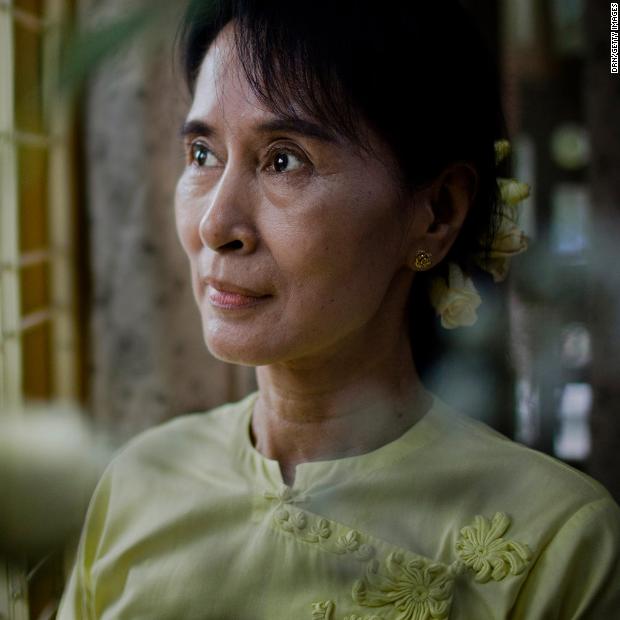
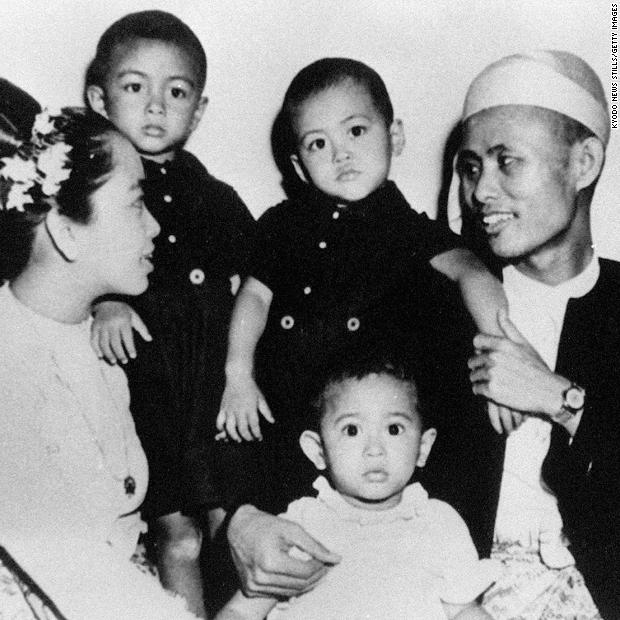
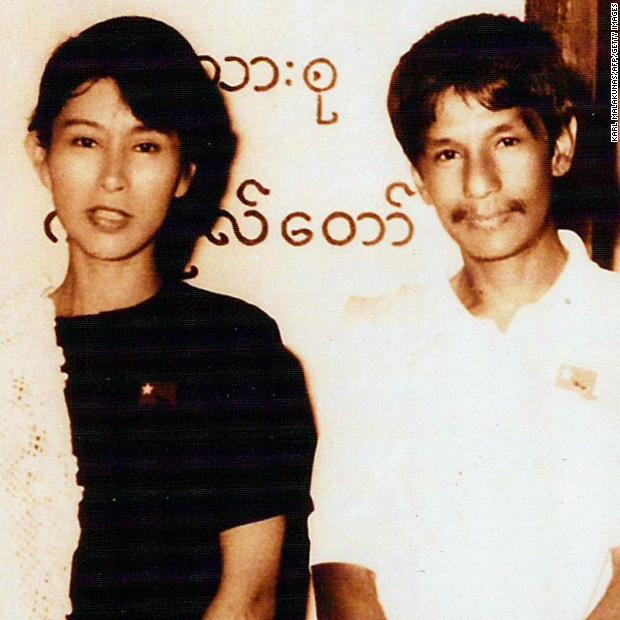
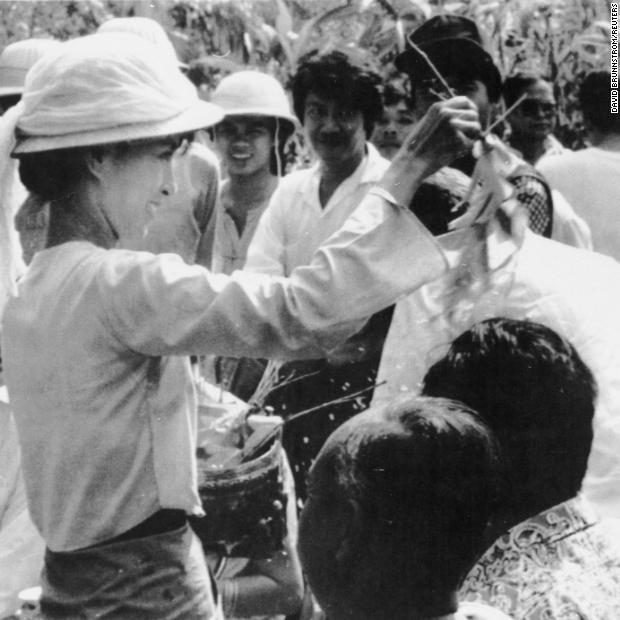
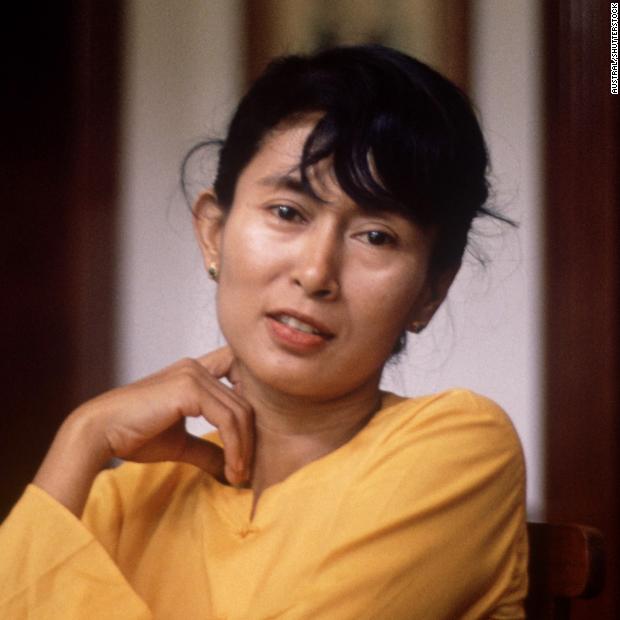
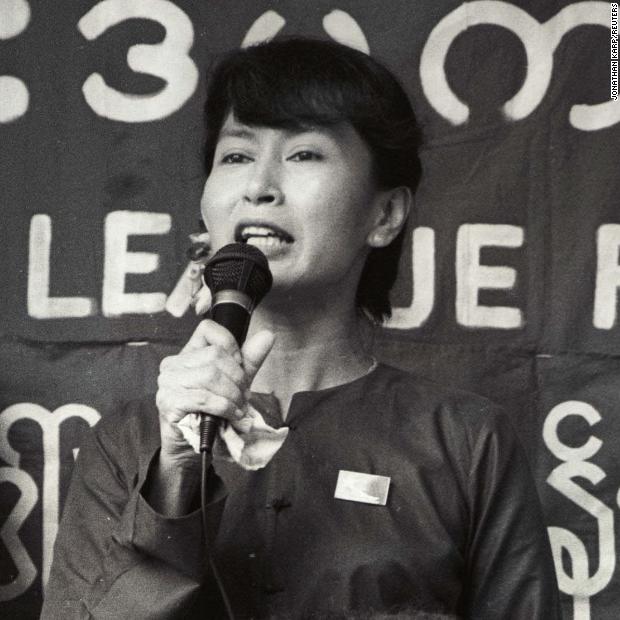
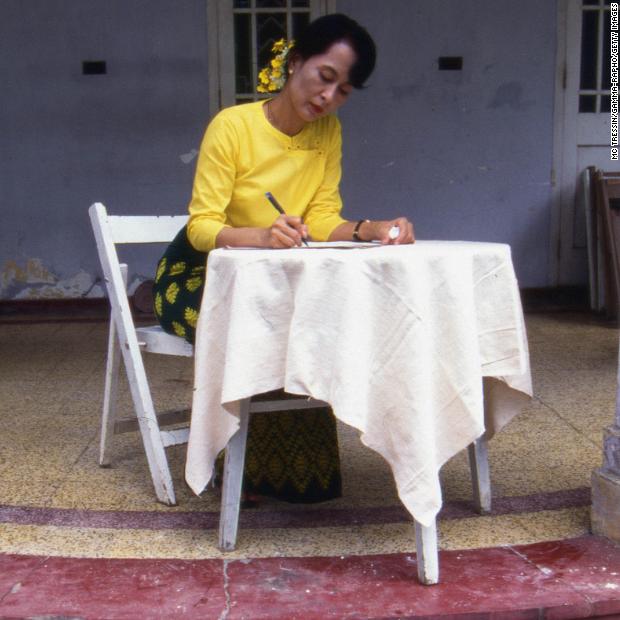
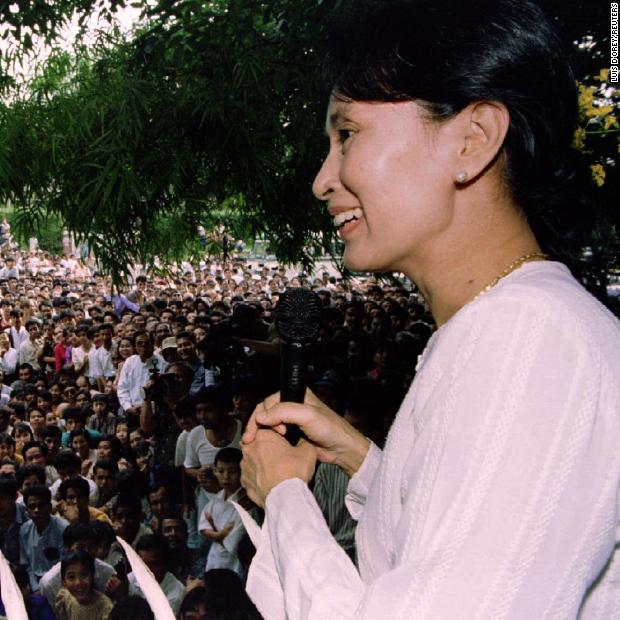
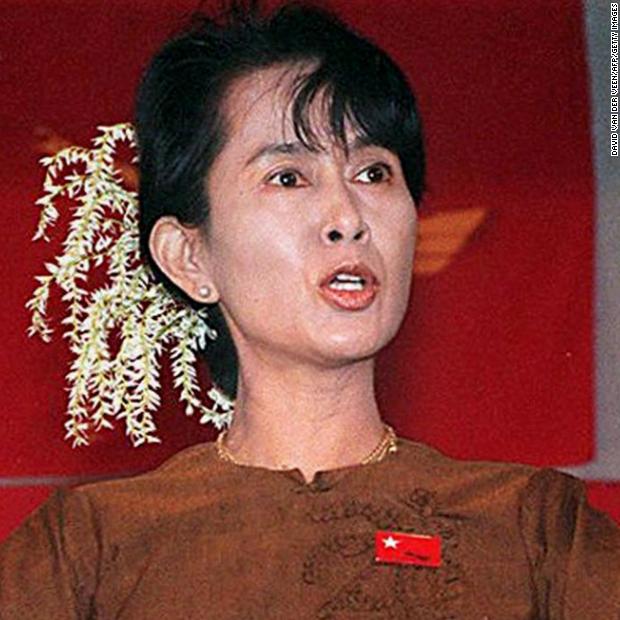
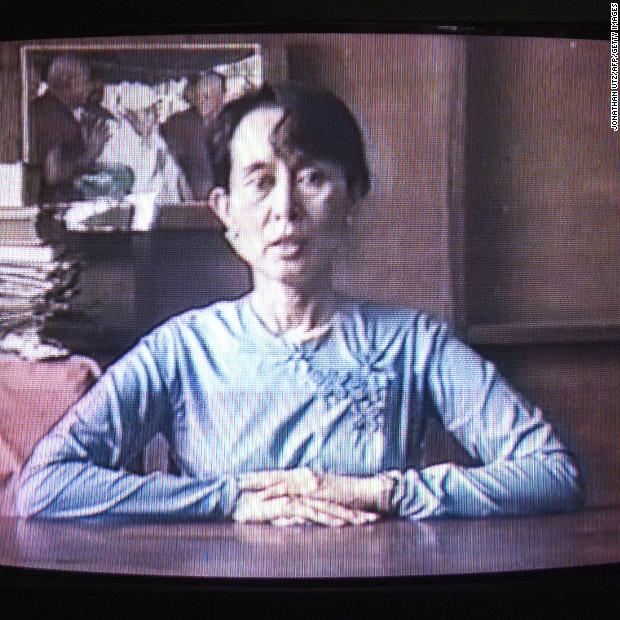
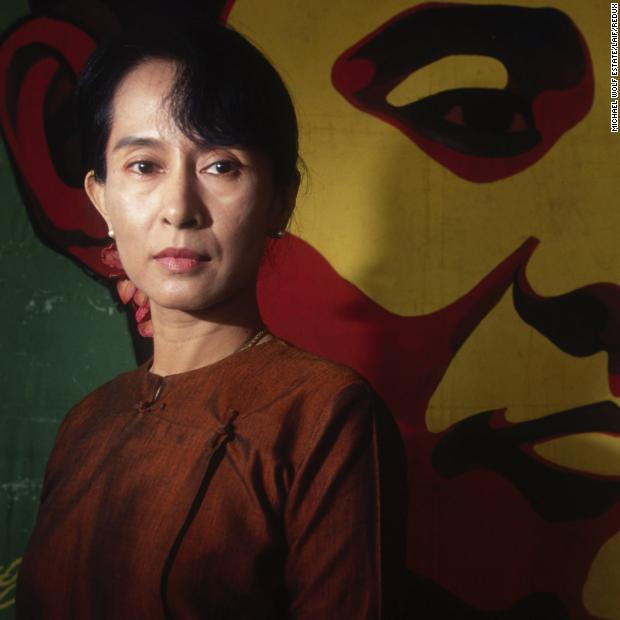
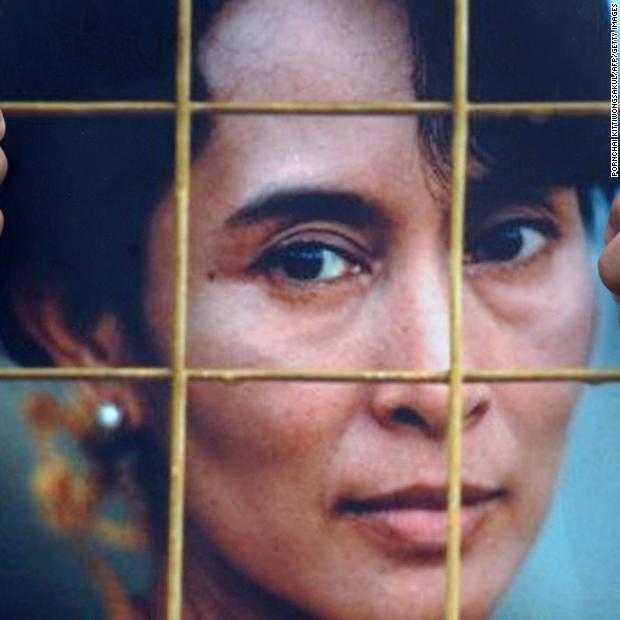
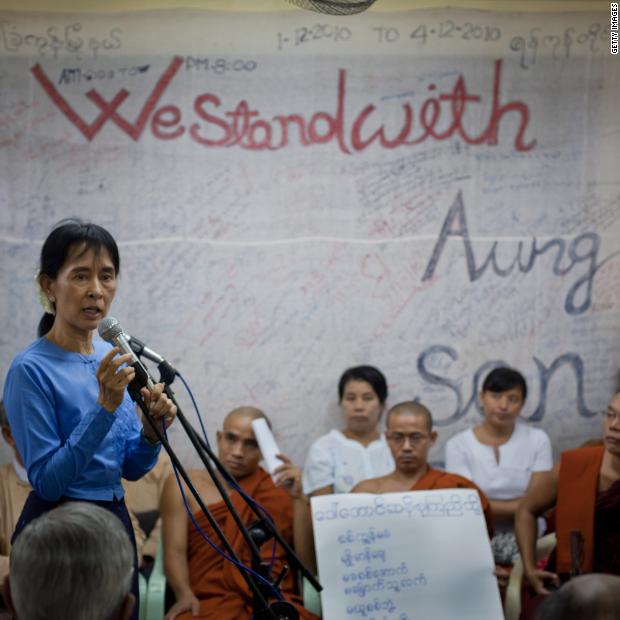
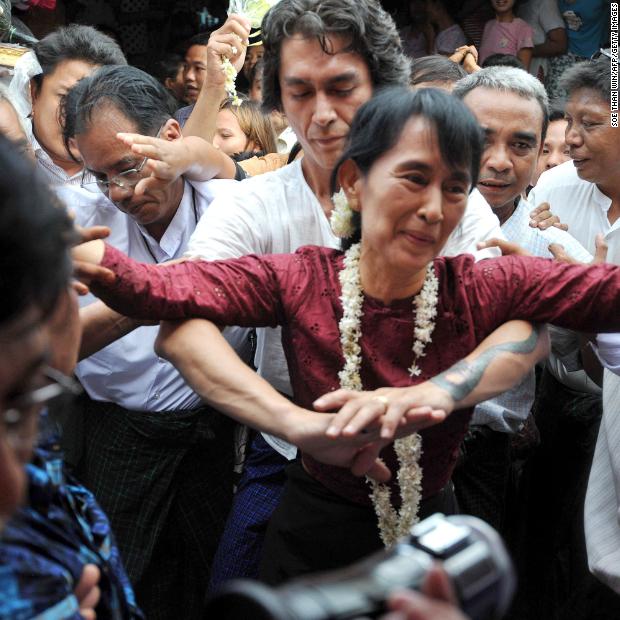
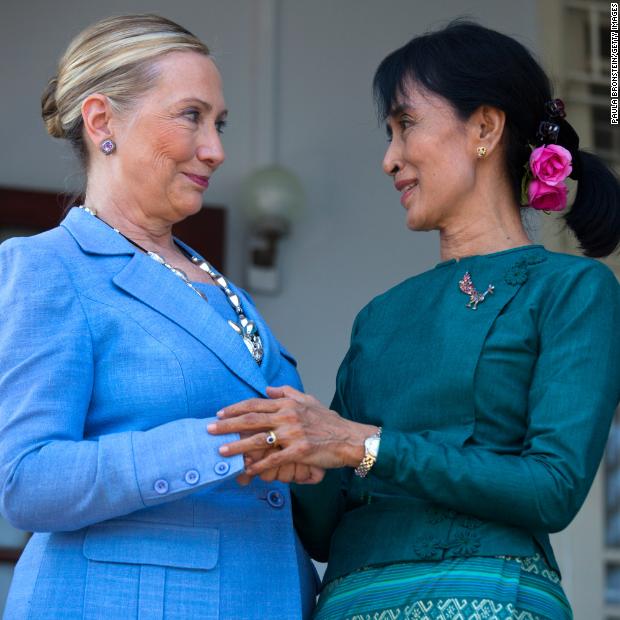
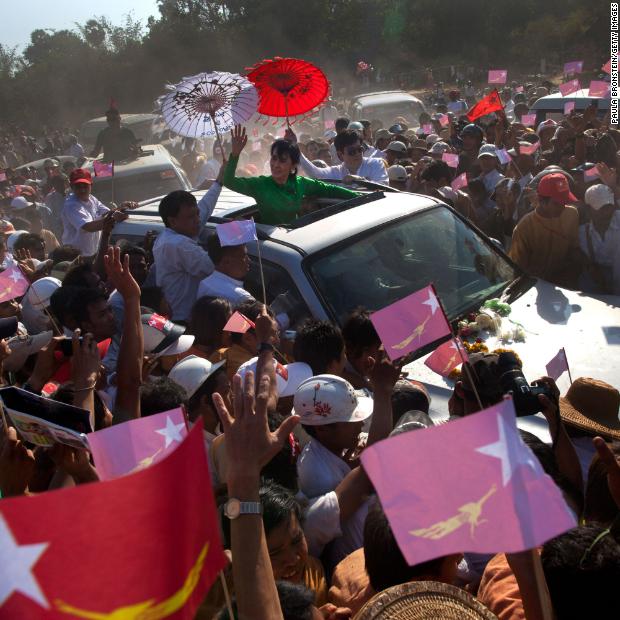
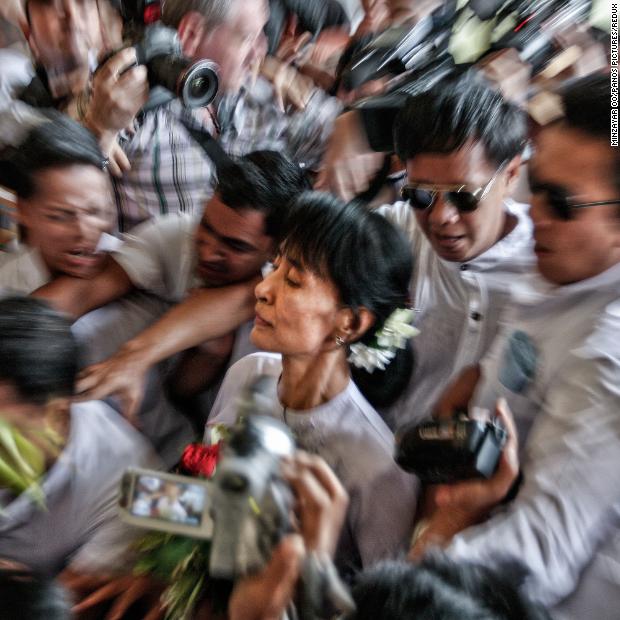
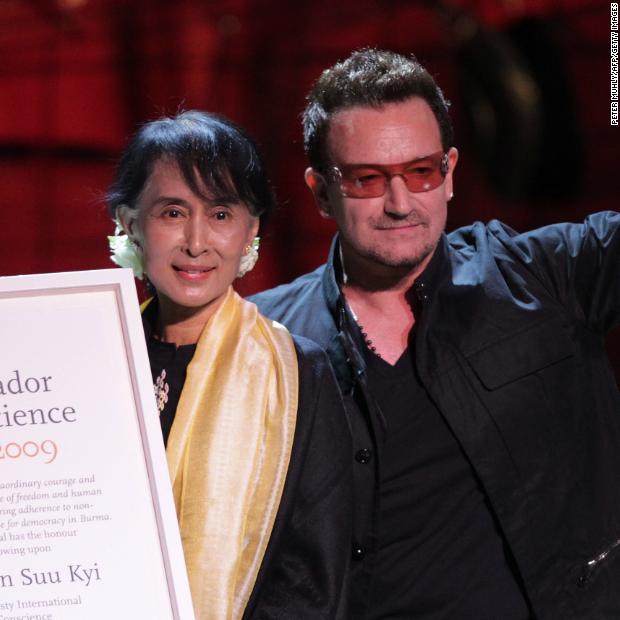
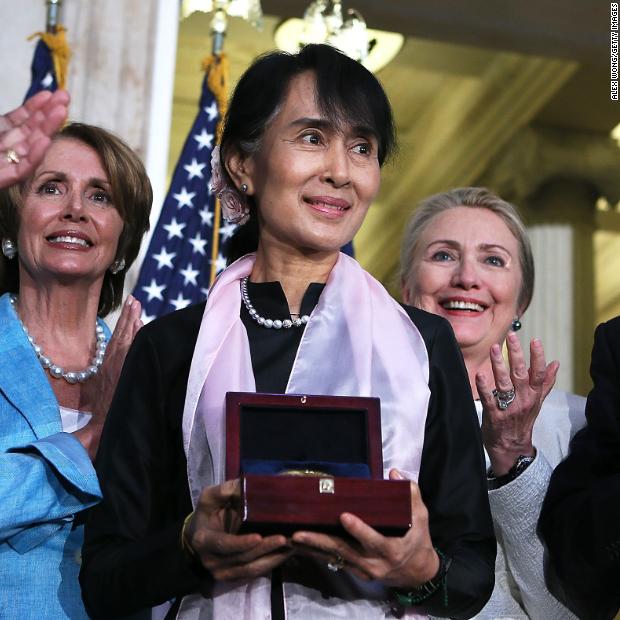
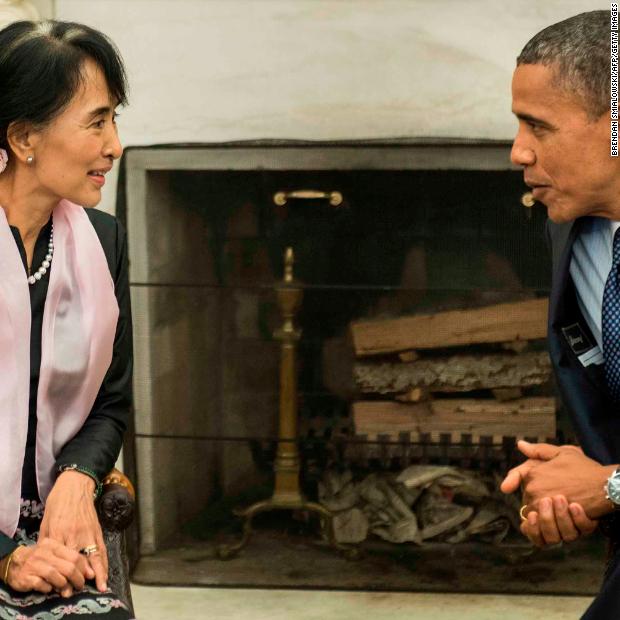
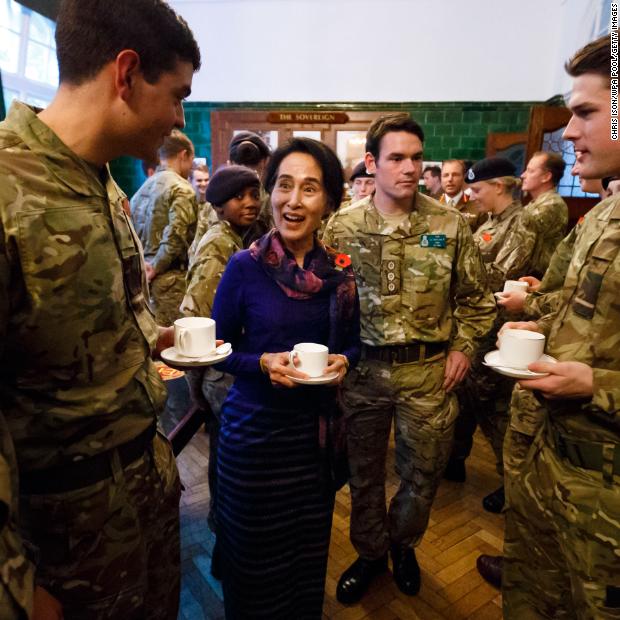
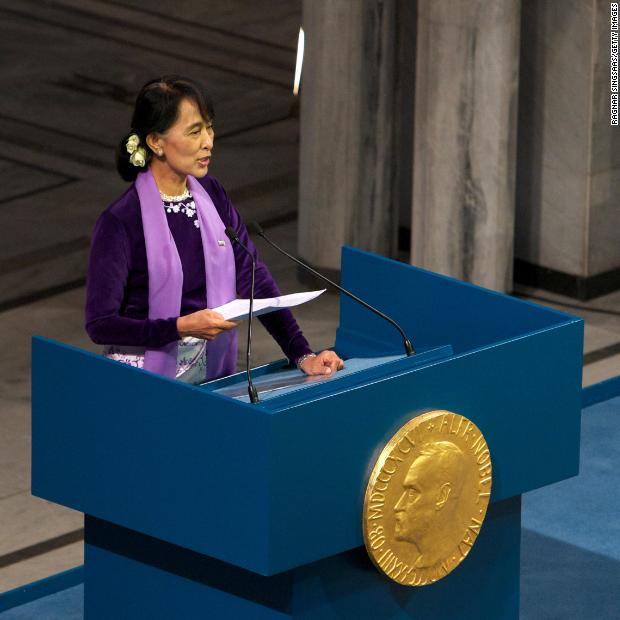
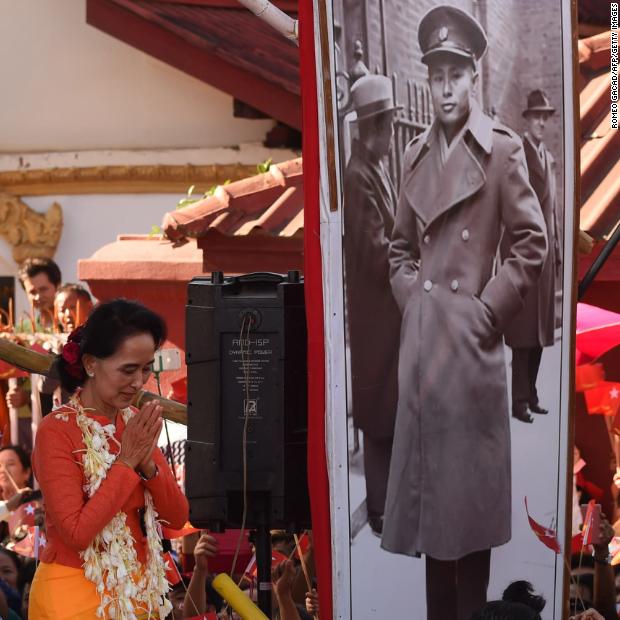
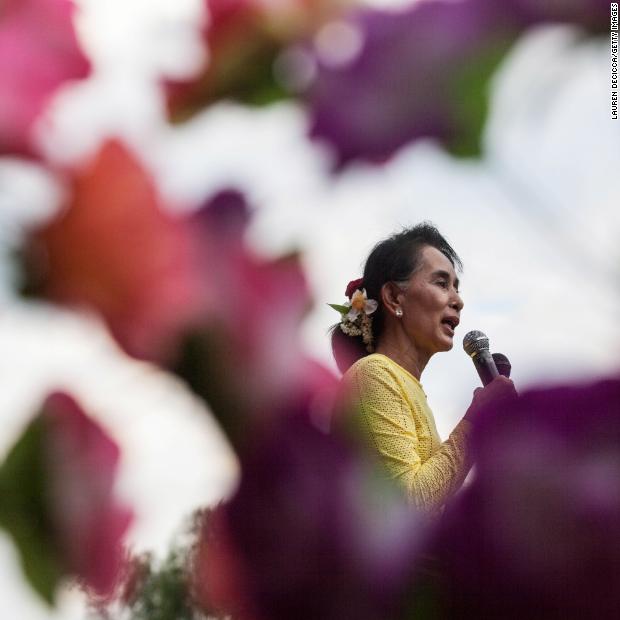
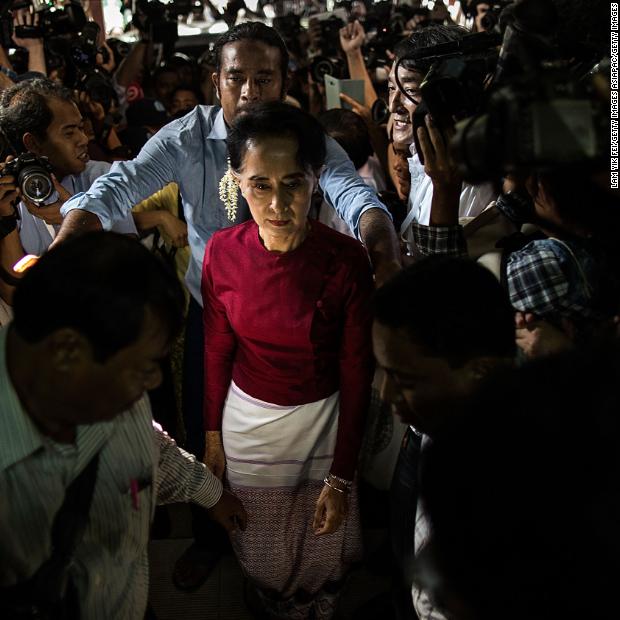
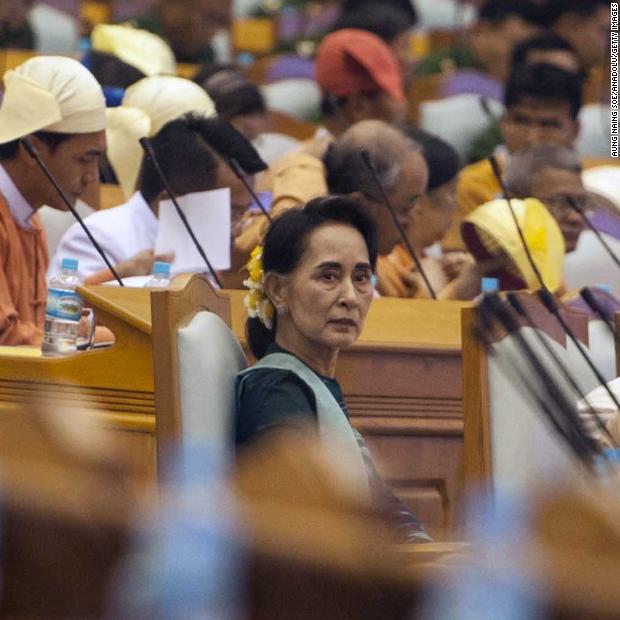
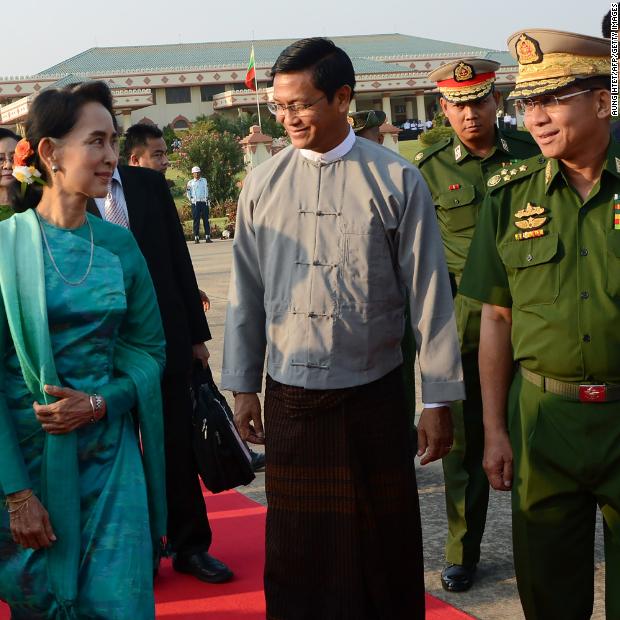
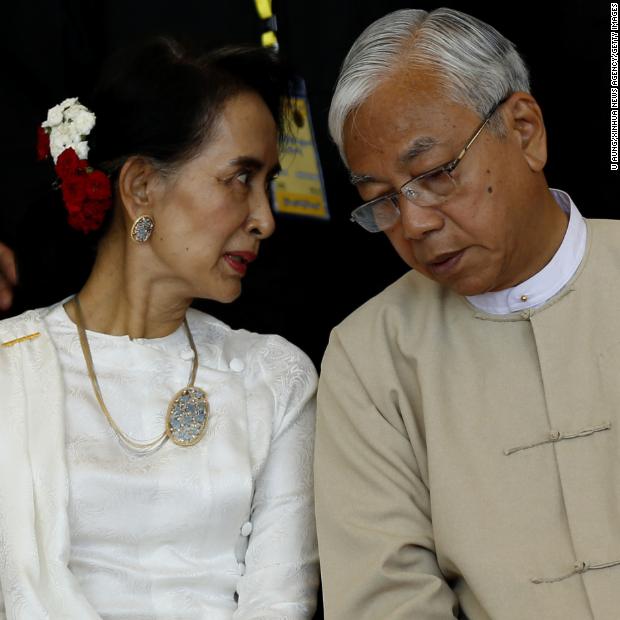
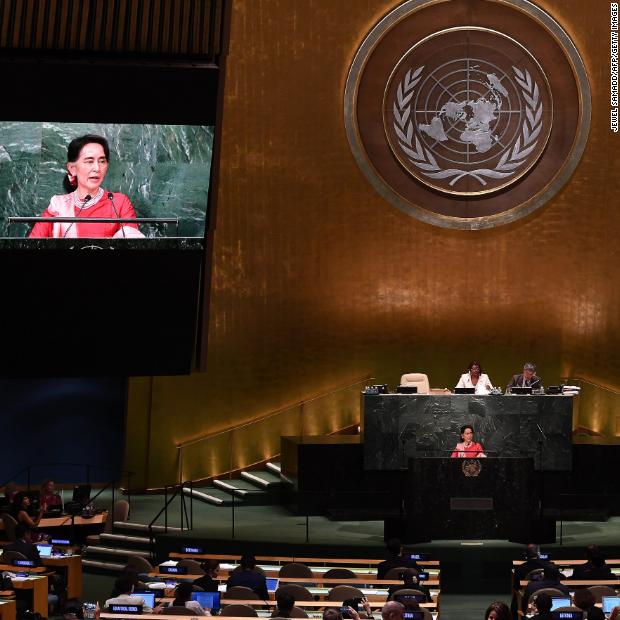
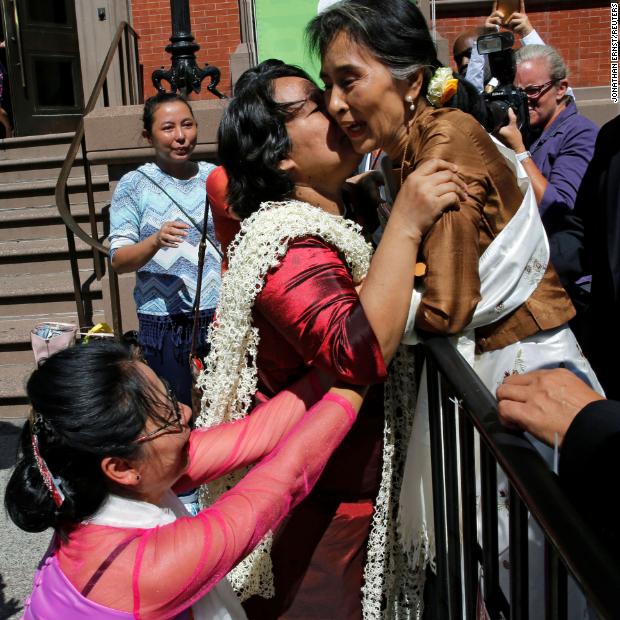
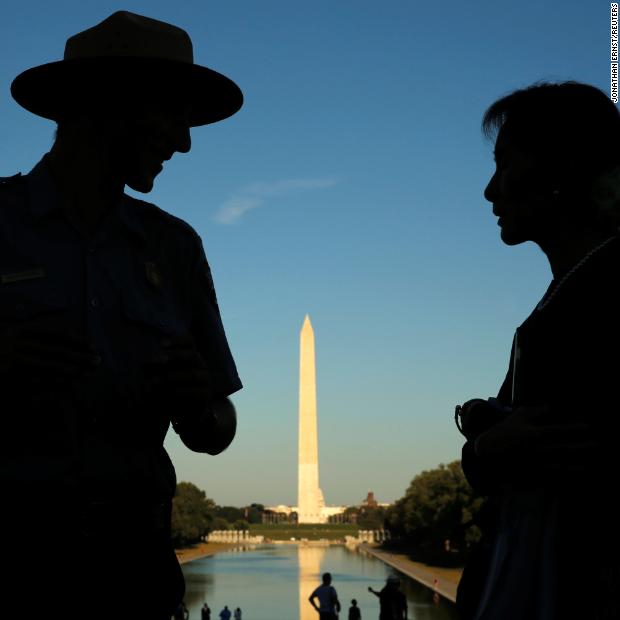
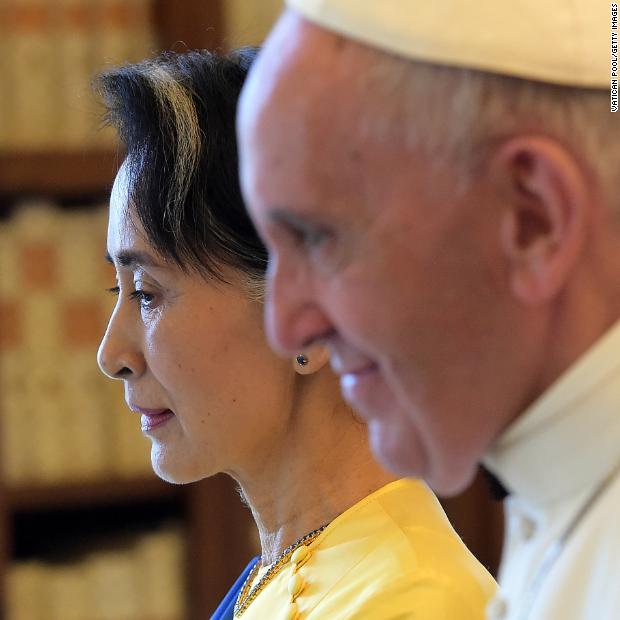
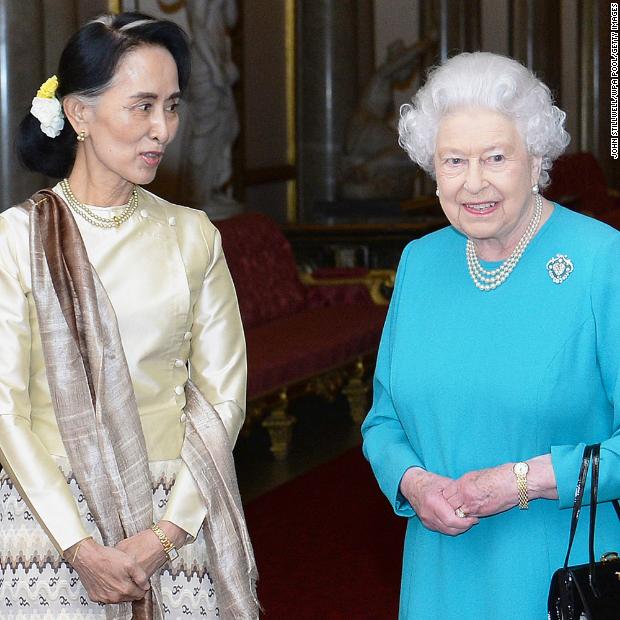
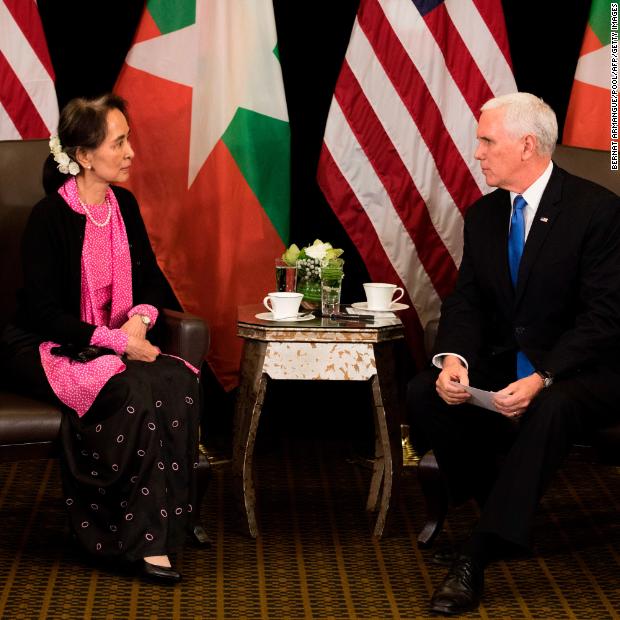
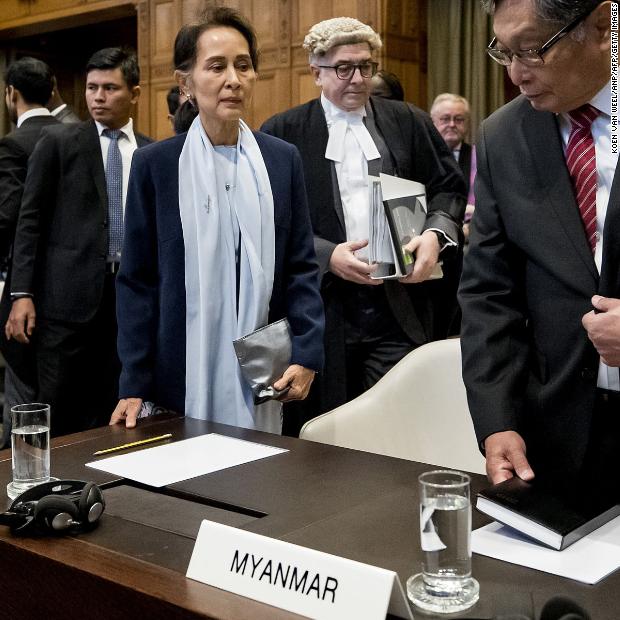
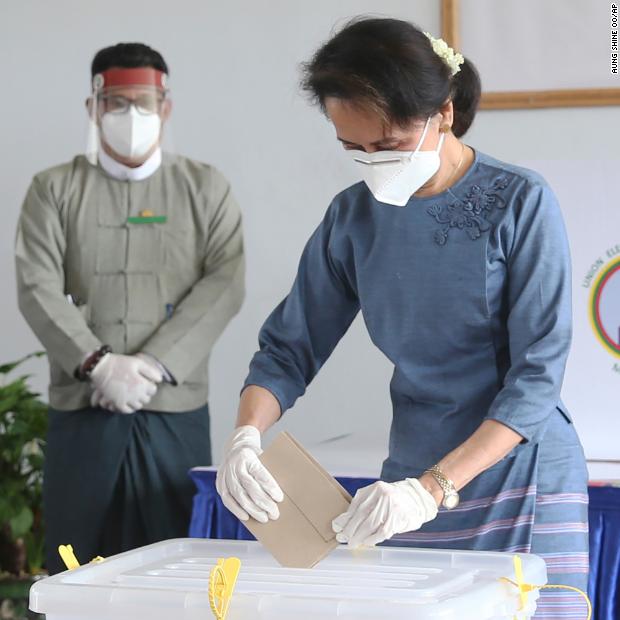
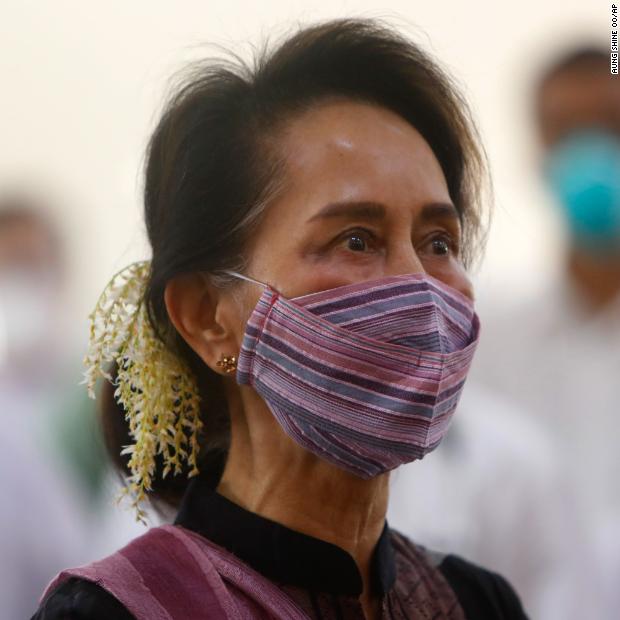
In Naypyidaw Tuesday, though most businesses had reopened, a heavier security presence remained. Tanks were seen at the gates of parliament, and soldiers were standing guard outside a government guesthouse where some politicians who were detained in the coup said they were being held.While communications across the country remained spotty with intermittent connections on phone and data, banks had reopened, according to state-run newspaper Global New Light of Myanmar. In Yangon, residents could be seen queuing to get cash out at ATMs.NLD spokesperson Kyi Toe late Monday said on his personal Facebook page that Suu Kyi was being held at her official residence, where she was “feeling well” and “walking in the compound frequently.”A statement purportedly from the de facto leader was published on her party’s official Facebook account Monday, calling for people to protest against the coup, though there were questions about the statement’s authenticity.”The actions of the military are actions to put the country back under a dictatorship,” the statement said.Suu Kyi has not been seen since she was detained early on Monday morning. The statement ends with her name but is not signed, and it was unclear how Suu Kyi would issue a statement while in detention.Analysts warned that social media accounts could have been hacked or taken over by bad actors in order to encourage actions that might provide a pretext for further military force.
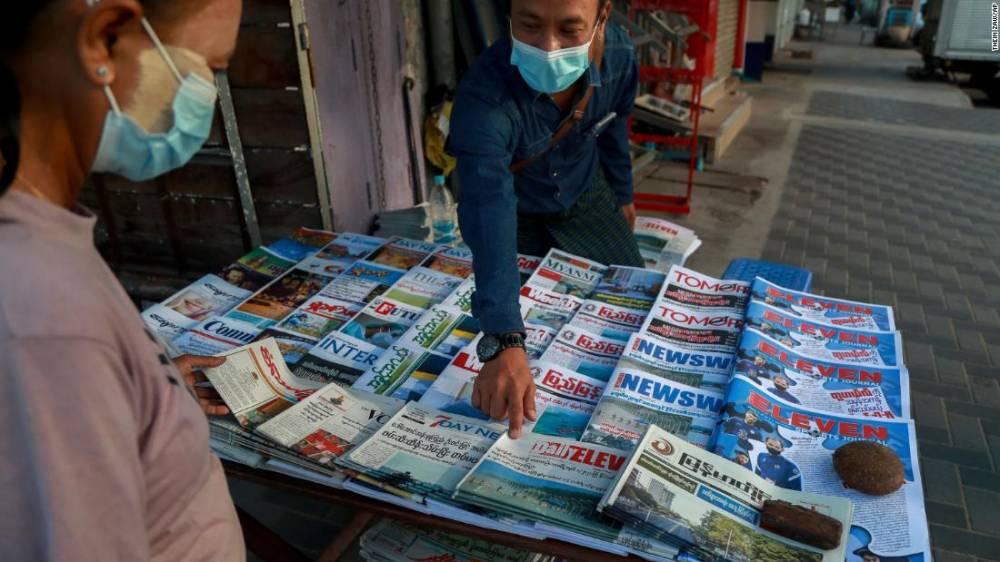
A newspaper seller points at a front-page of a newspaper in Yangon, Myanmar, Febuary 2, 2021. The only demonstrations seen so far have been small-scale and from pro-military supporters. Suu Kyi, however, remains enormously popular, especially among the country’s majority Bamar ethnic group. Doctors working in hospitals across Myanmar have pledged to go on strike from Wednesday to protest the coup.The Assistant Doctors group at Yangon General Hospital released a statement on Tuesday saying it would take part in the “civil disobedience movement.”The doctors say they will not work under a military-led government and called for Suu Kyi and Myint to be released.Though her supporters have yet to take to the streets, many in Yangon have privately expressed anger over the military’s actions, which they said disregarded the will of the people in what was considered to be a generally fair election. Some have also questioned why the military would take over when they benefited from the previous legislative arrangement. The military, or Tatmadaw, as they are officially known, were constitutionally guaranteed 25% of seats in parliament and control over powerful ministries.One Yangon-based reporter said he spent a sleepless night worrying about whether he would get a knock on the door and was scared that journalists would be targeted next.
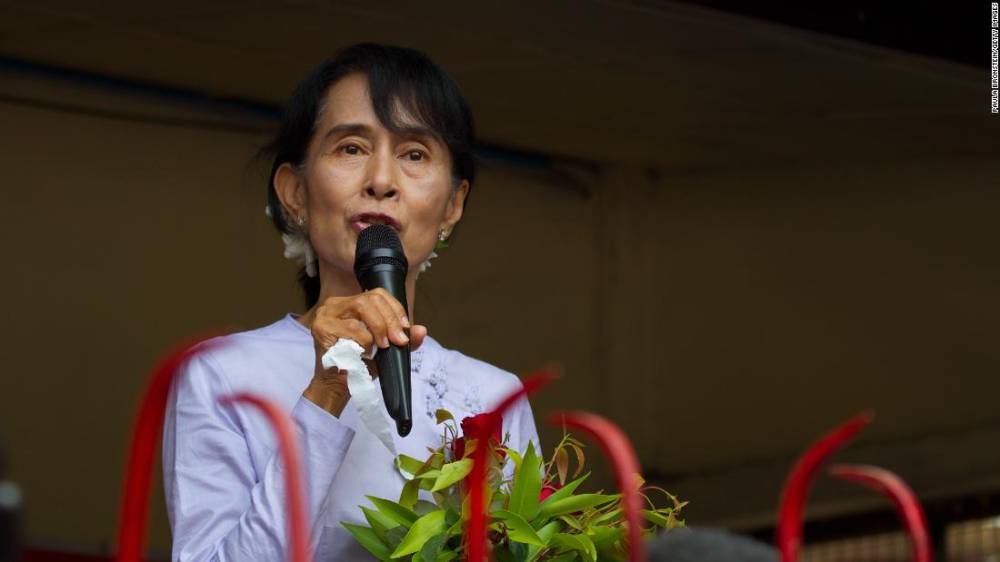
After a decade of freedom, Aung San Suu Kyi returns to detention a tarnished figure outside Myanmar”All the people now realize what the military are capable of. This is who they are and this is how they rule. You cant underestimate them. All Burmese people understand now, that, OK, this is the real situation — the past five years, the freedom we got, is nothing,” said the reporter, who didn’t give his name due to the potential dangers.Disastrous economic and socialist policies under dictator General Ne Win had plunged the country into poverty and a mass popular uprising against his regime in 1988 was brutally put down by the military. Another coup in September that year installed the State Law and Order Restoration Council (SLORC), and during its rule, thousands of people including democracy leaders, activists and journalists were imprisoned for decades. Others fled into exile abroad or went to the jungles and took up arms against the military government as part of a student army (ABSDF).”We’ve got trauma. Nobody wants to get shot, flee the country, join in the jungle like the ABSDF did before. Nobody wants that situation again,” said the Yangon reporter. News of the coup, he said, was like history repeating itself. He remembers listening to the radio when his dad was arrested and spent 10 years in jail on political charges when he was 3 years old. “All the things happened during those 36 years, history is repeating. The cycle is repeating. Nothing is new, nothing is strange. It is the same,” he said. The United Nations Security Council is set to hold an emergency meeting Tuesday, with UN Secretary-General Antonio Guterres saying the events were a “serious blow to democratic reforms.”
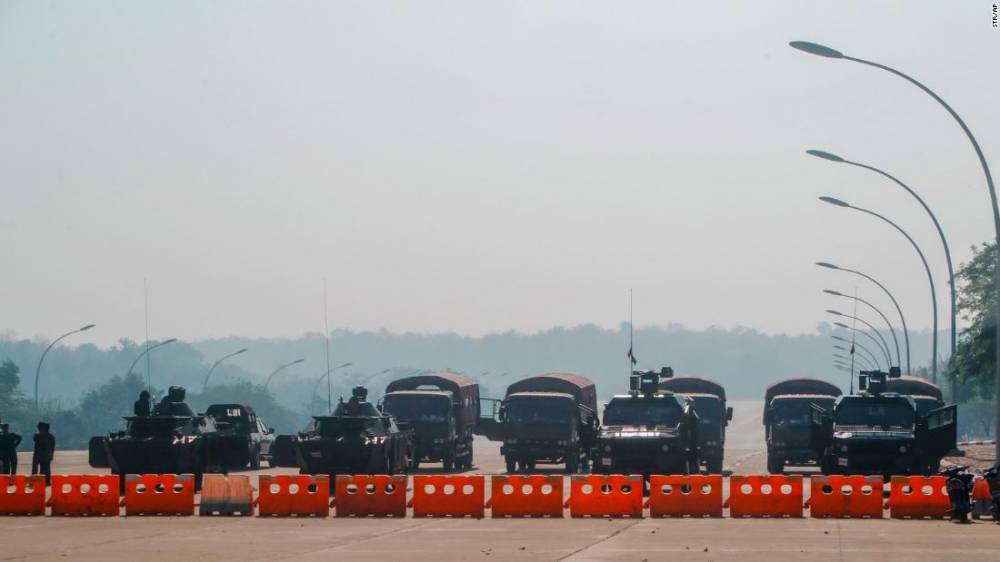
Myanmar’s military stand guard at a checkpoint manned with armored vehicles blocking a road leading to the parliament building on Febuary 2, 2021, in Naypyidaw, Myanmar. UN special rapporteur on human rights in Myanmar Tom Andrews on Monday called for the imposition of sanctions and an arms embargo on the country.”Now, more than ever, we must act,” he said on his official Twitter account. The unfolding situation in Myanmar is also a big test for US President Joe Biden, who called on Myanmar’s military leaders to relinquish power and threatened to review sanctions on the country. The United States removed sanctions on Myanmar over the past decade based on progress toward democracy. “The reversal of that progress will necessitate an immediate review of our sanction laws and authorities, followed by appropriate action,” Biden said in a statement.
There is evidence that the uncertainty over what’s to come in the immediate aftermath of the coup is having an impact on international business. On Tuesday, Japan’s Suzuki Motor Corporation announced it has stopped production at its two factories in Myanmar to secure the safety of its workers following the coup. About 400 people work in the factories and the company’s public relations officer Mitsuru Mizutani said they will restart when the security of their workers is ensured, though they do not know when that will be.
Source: edition.cnn.com

